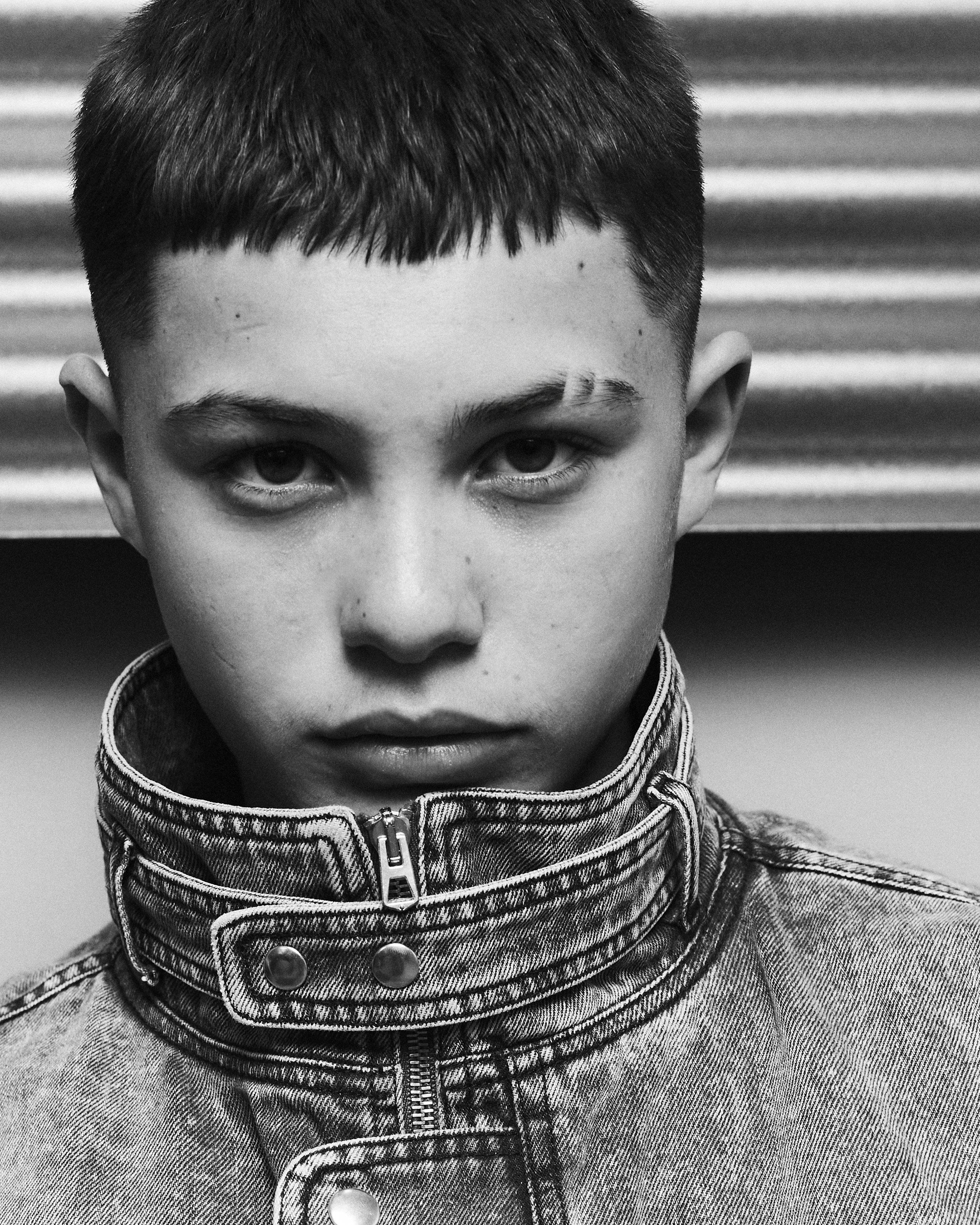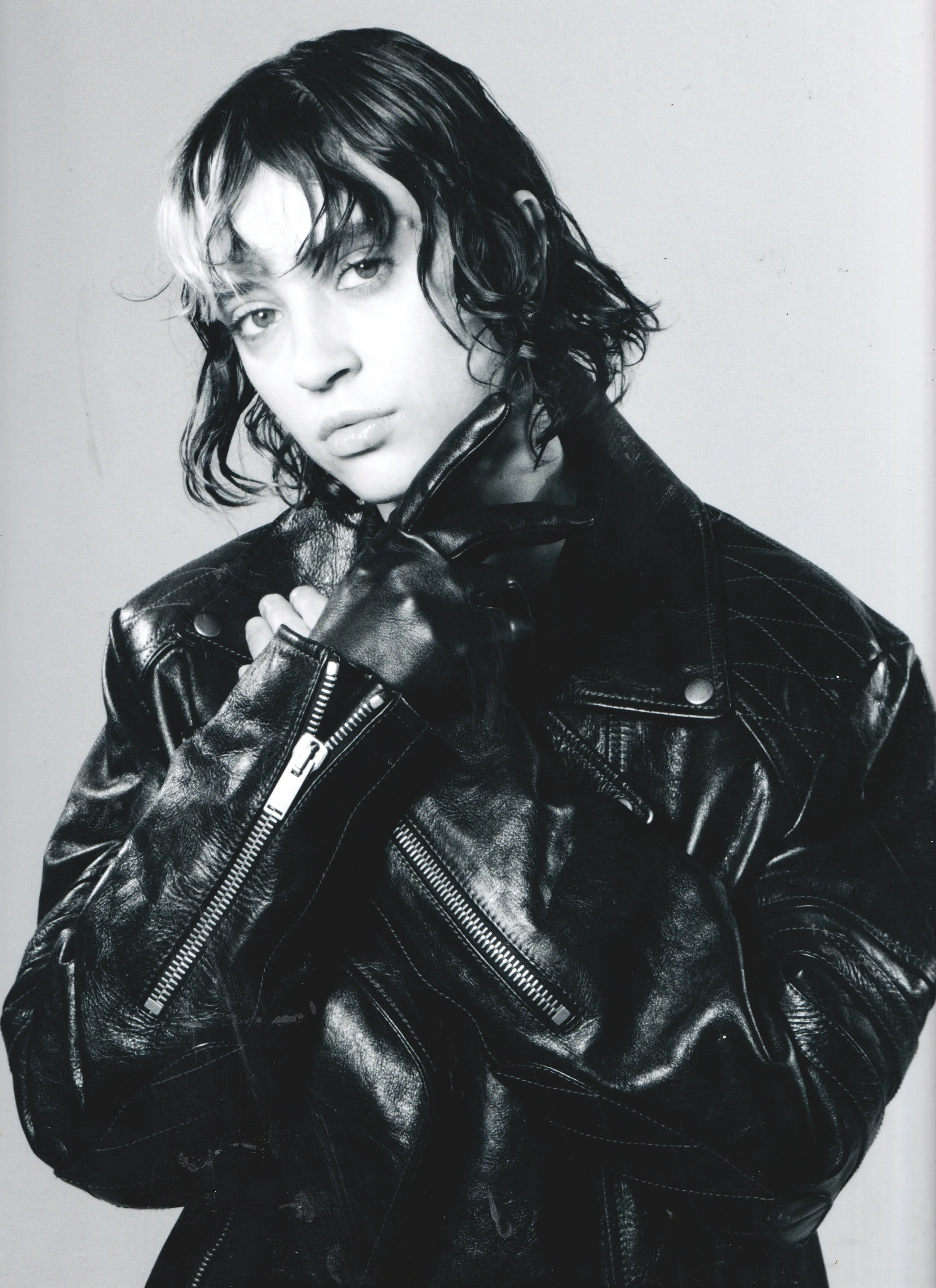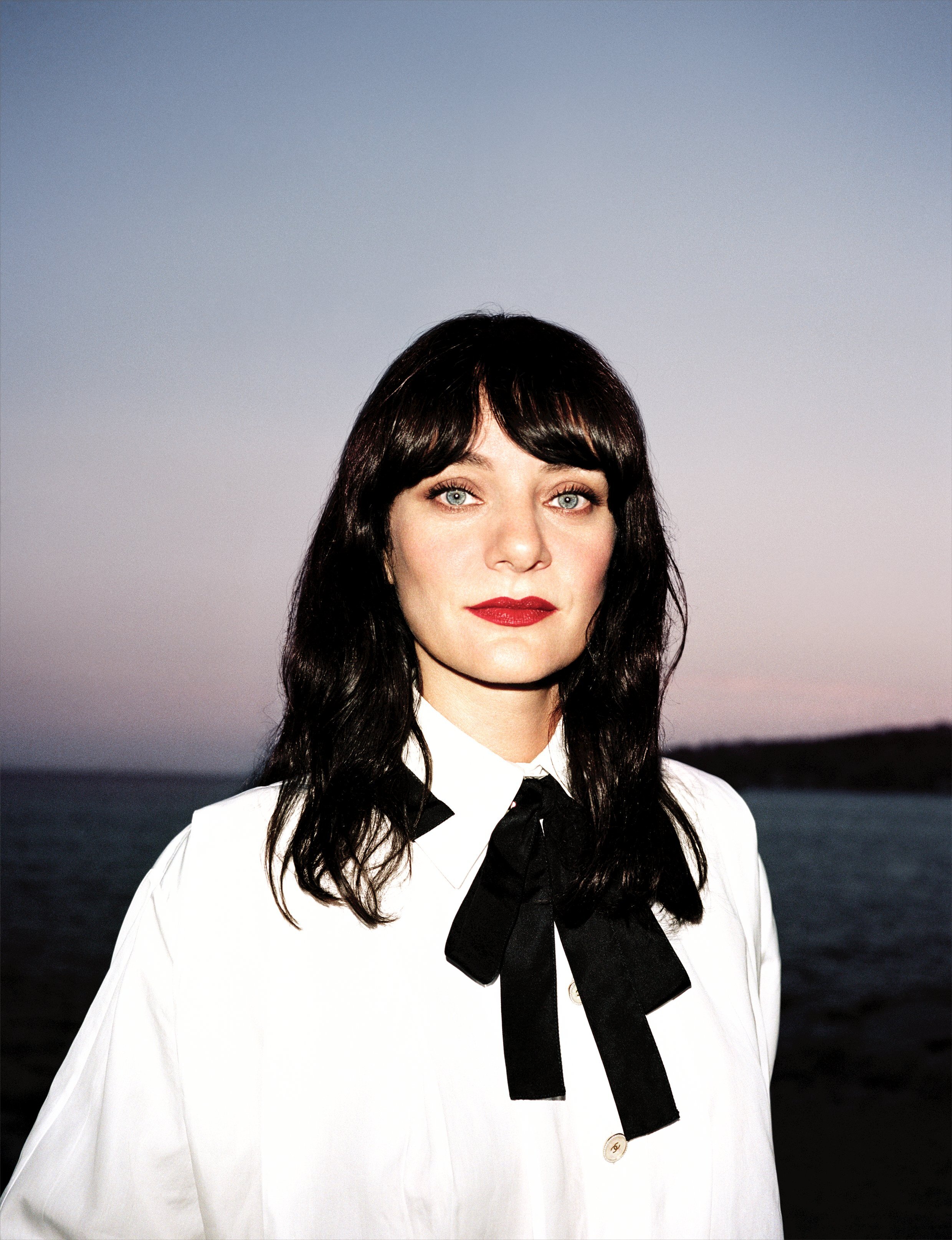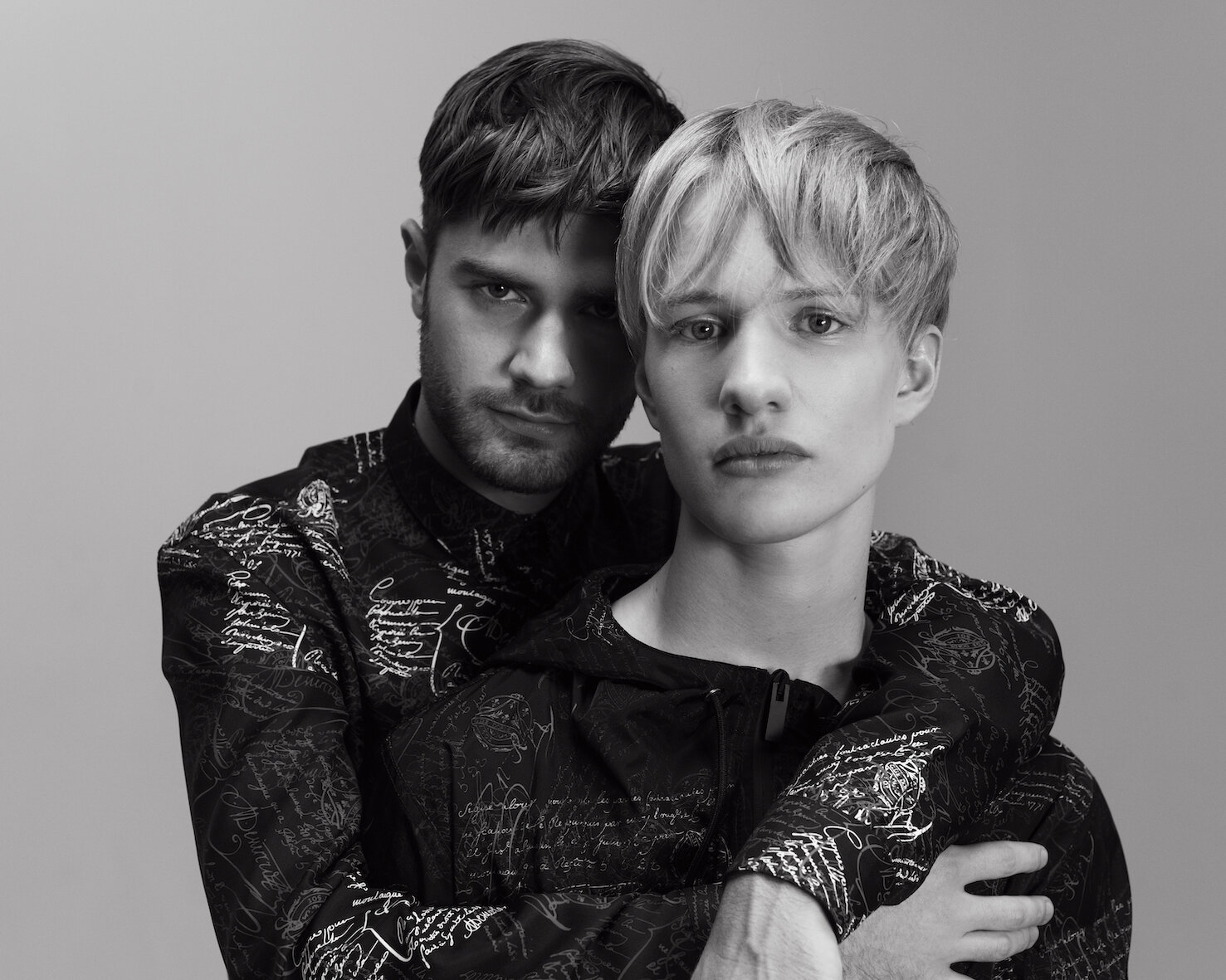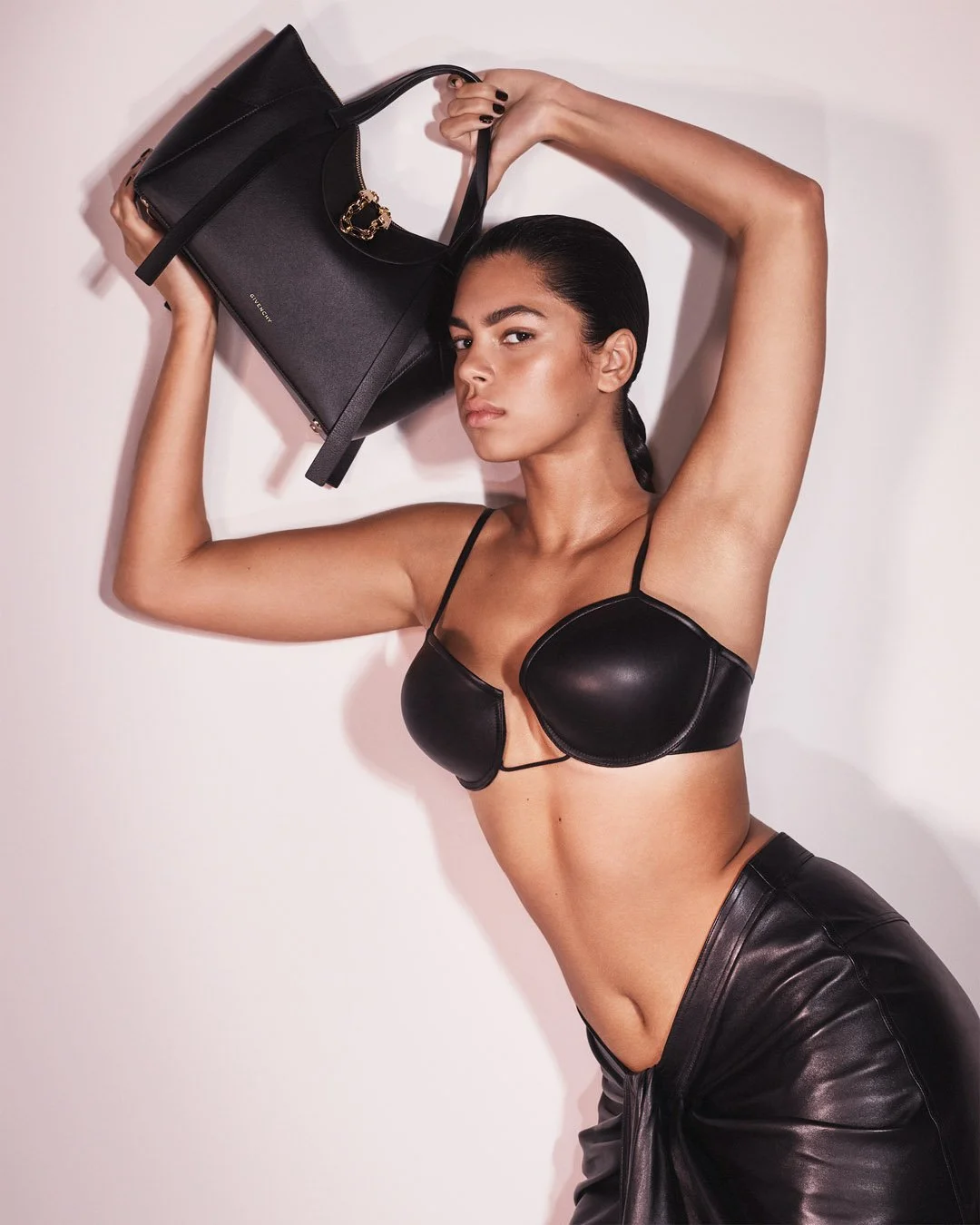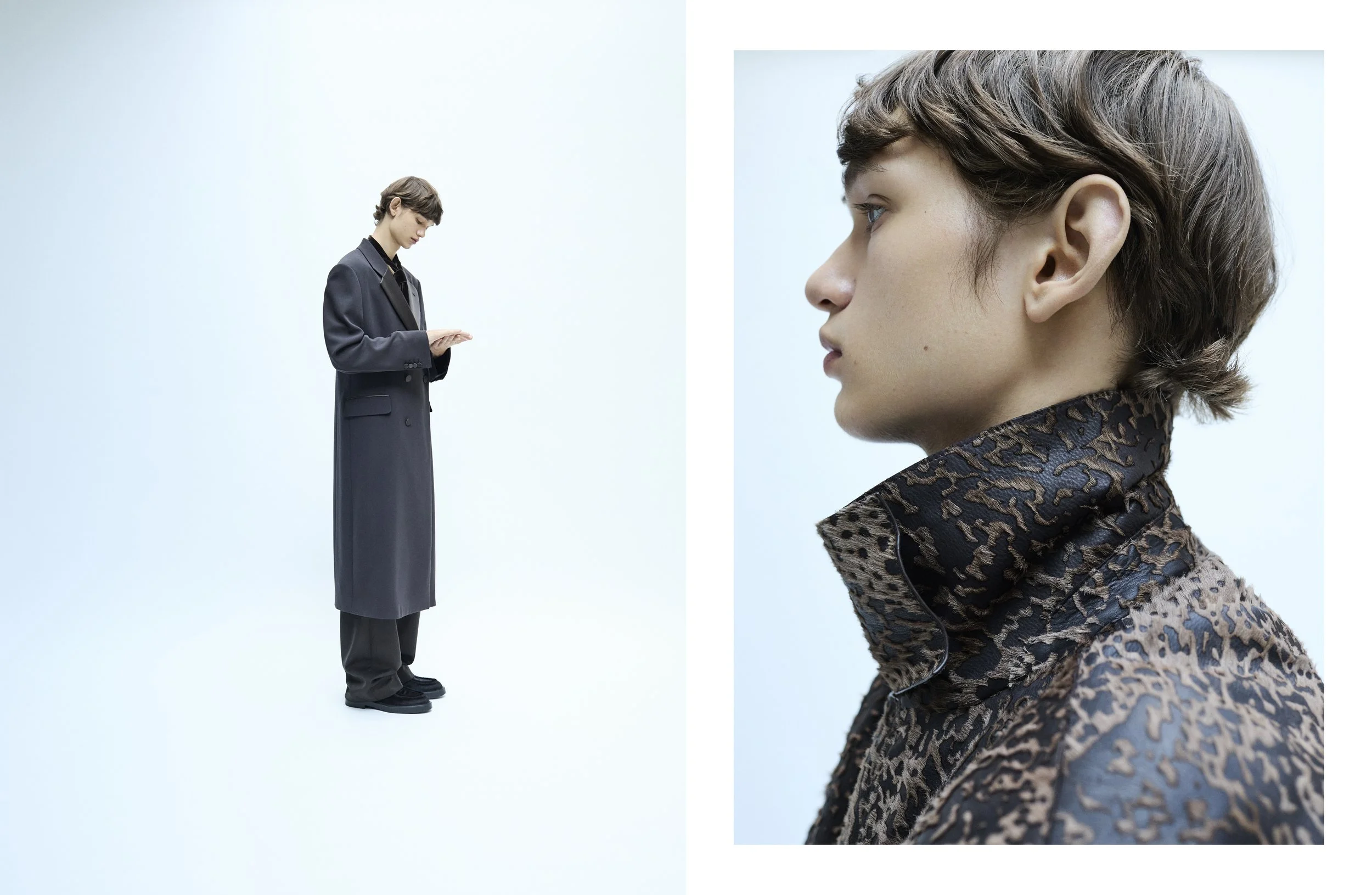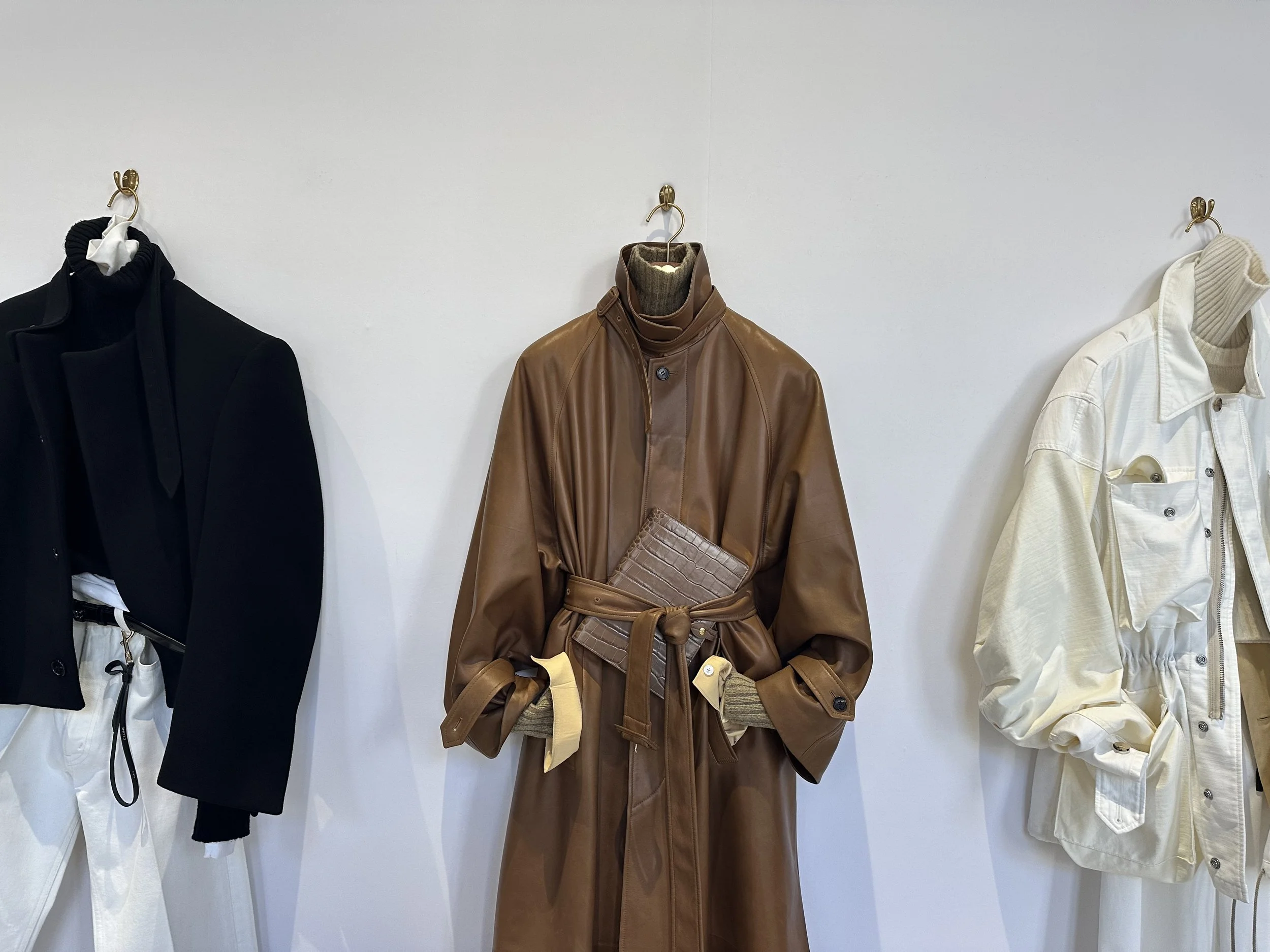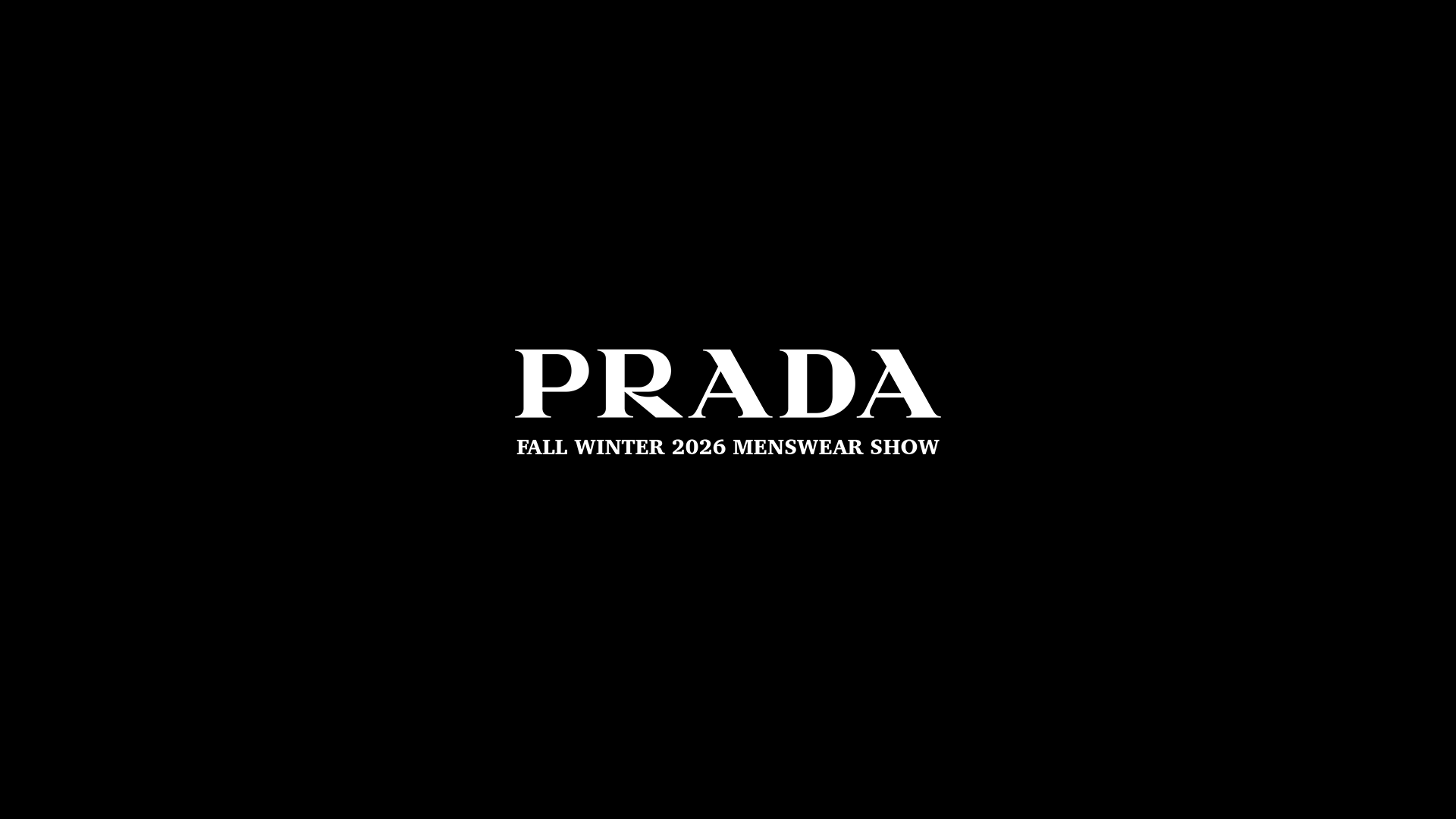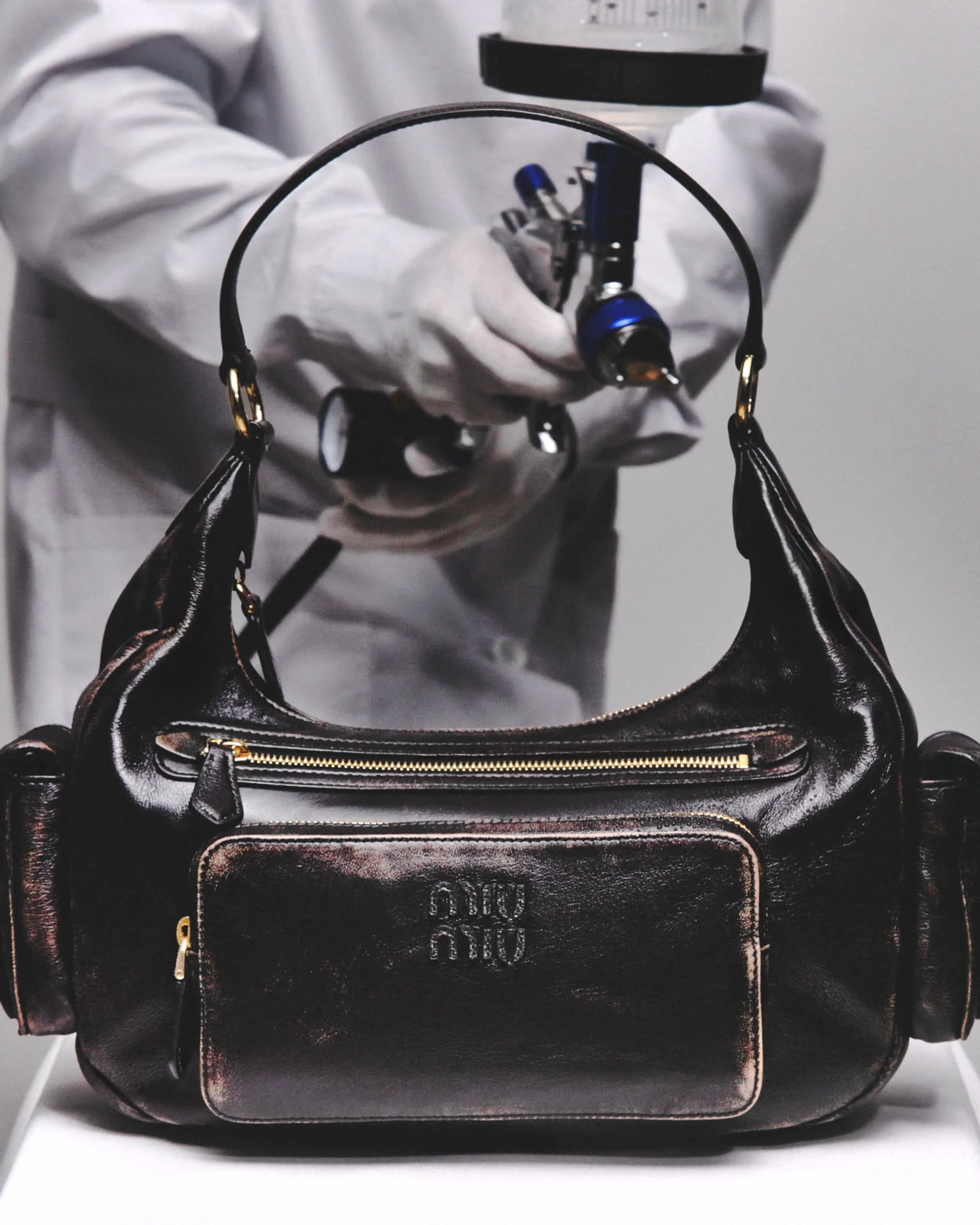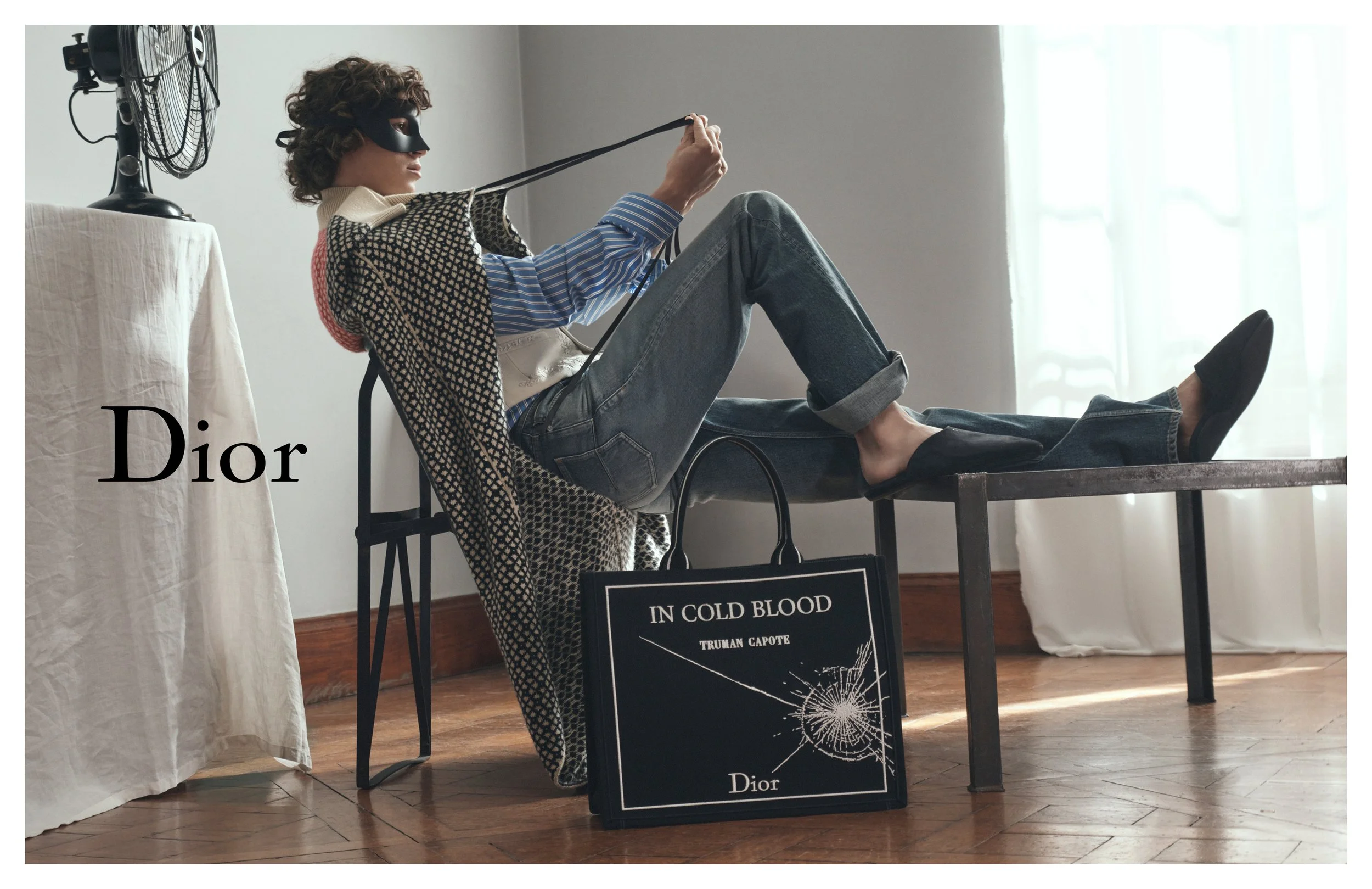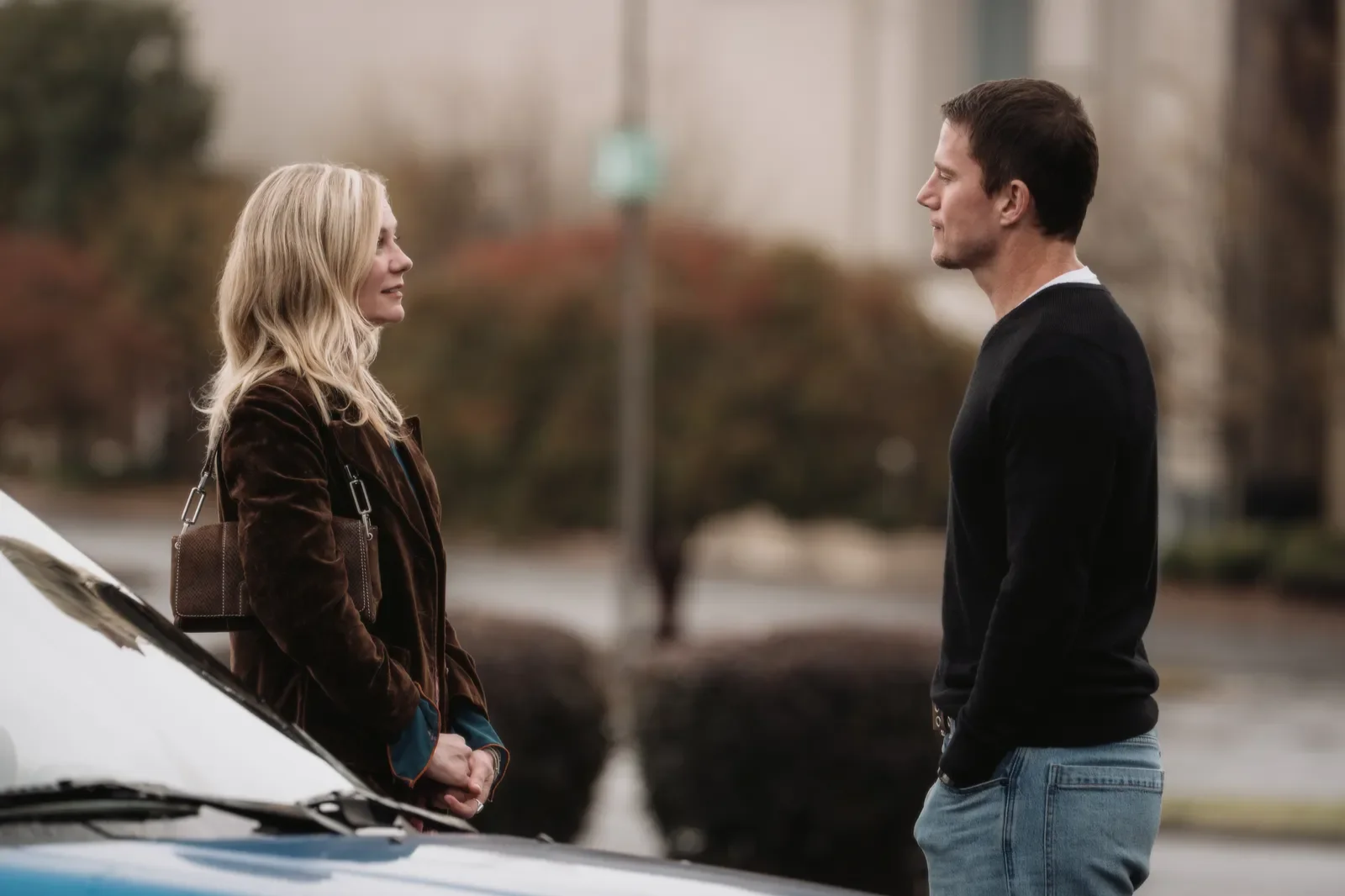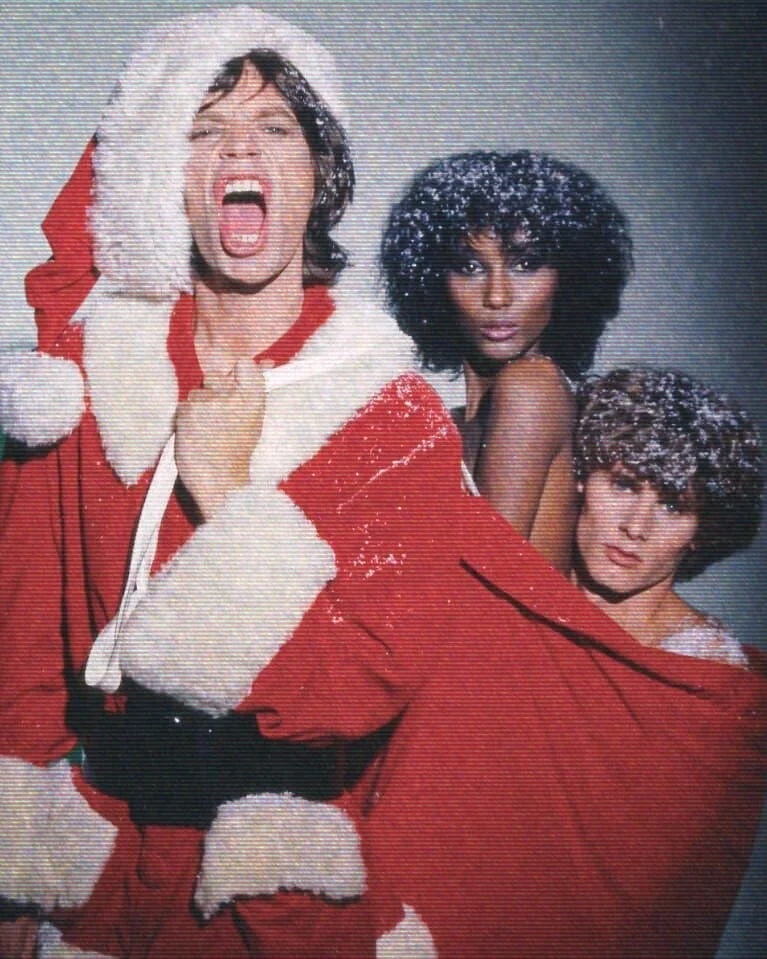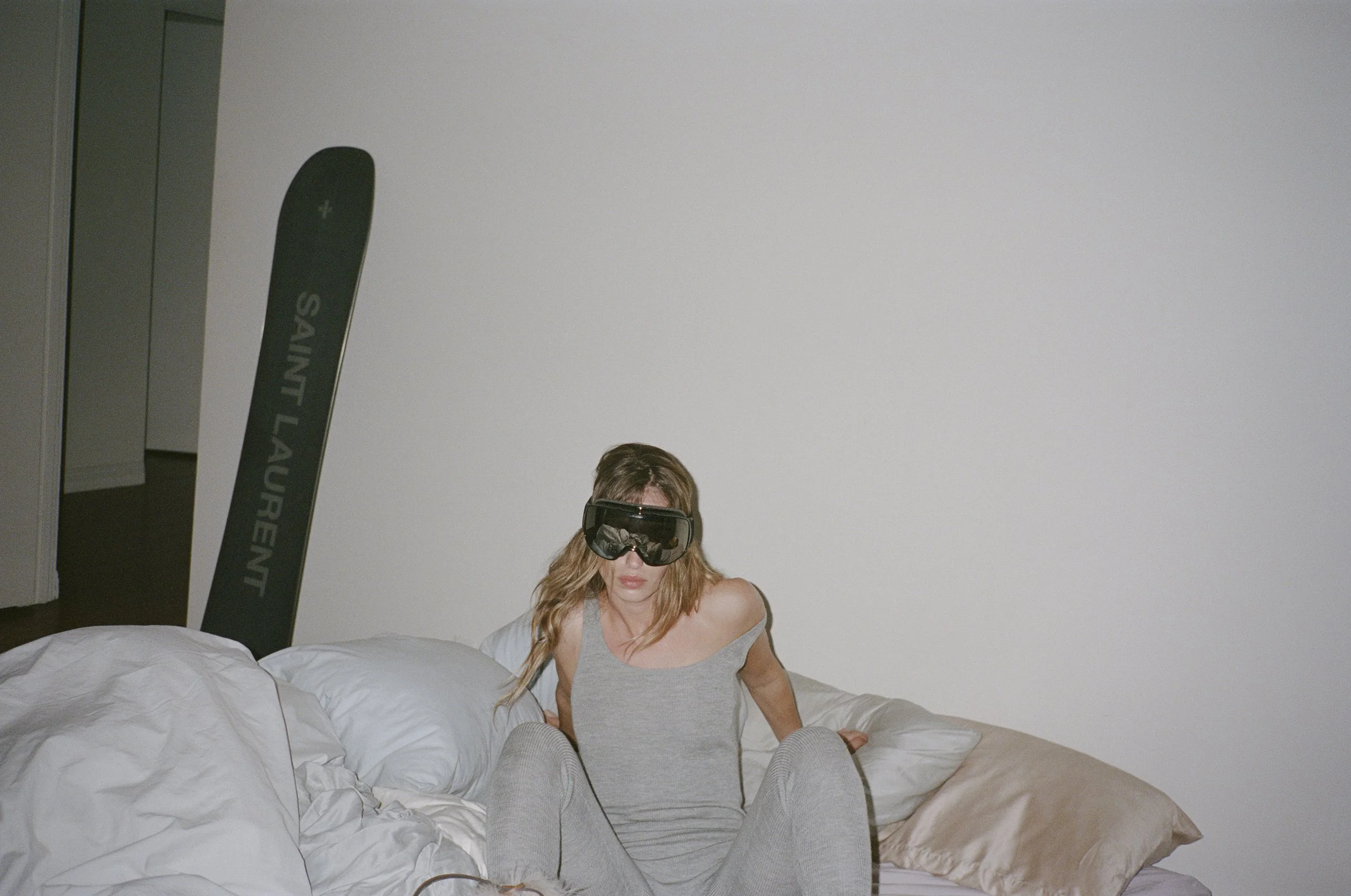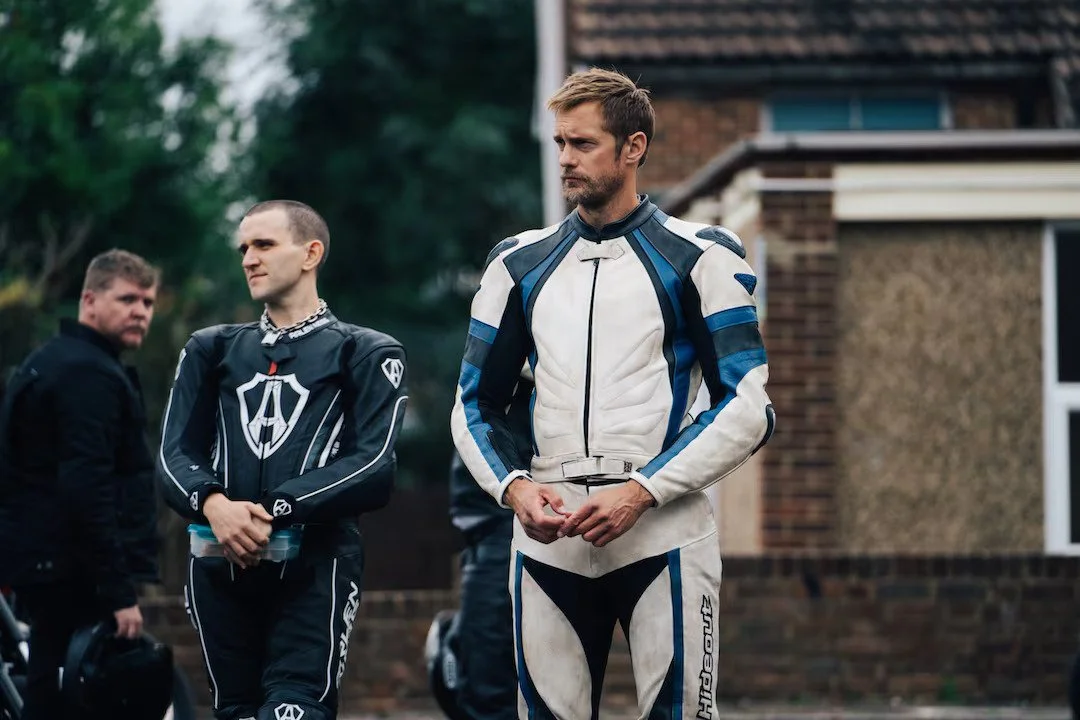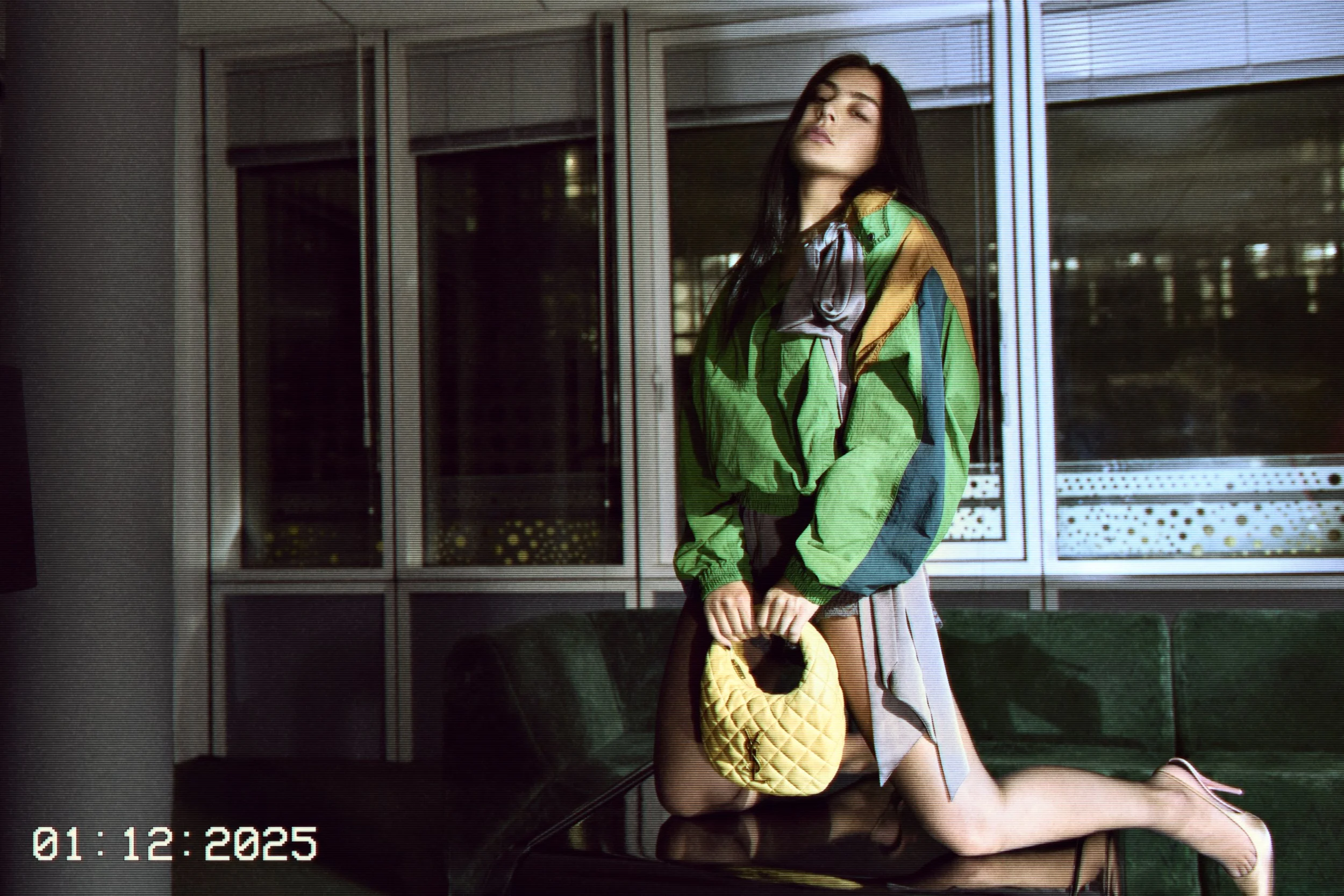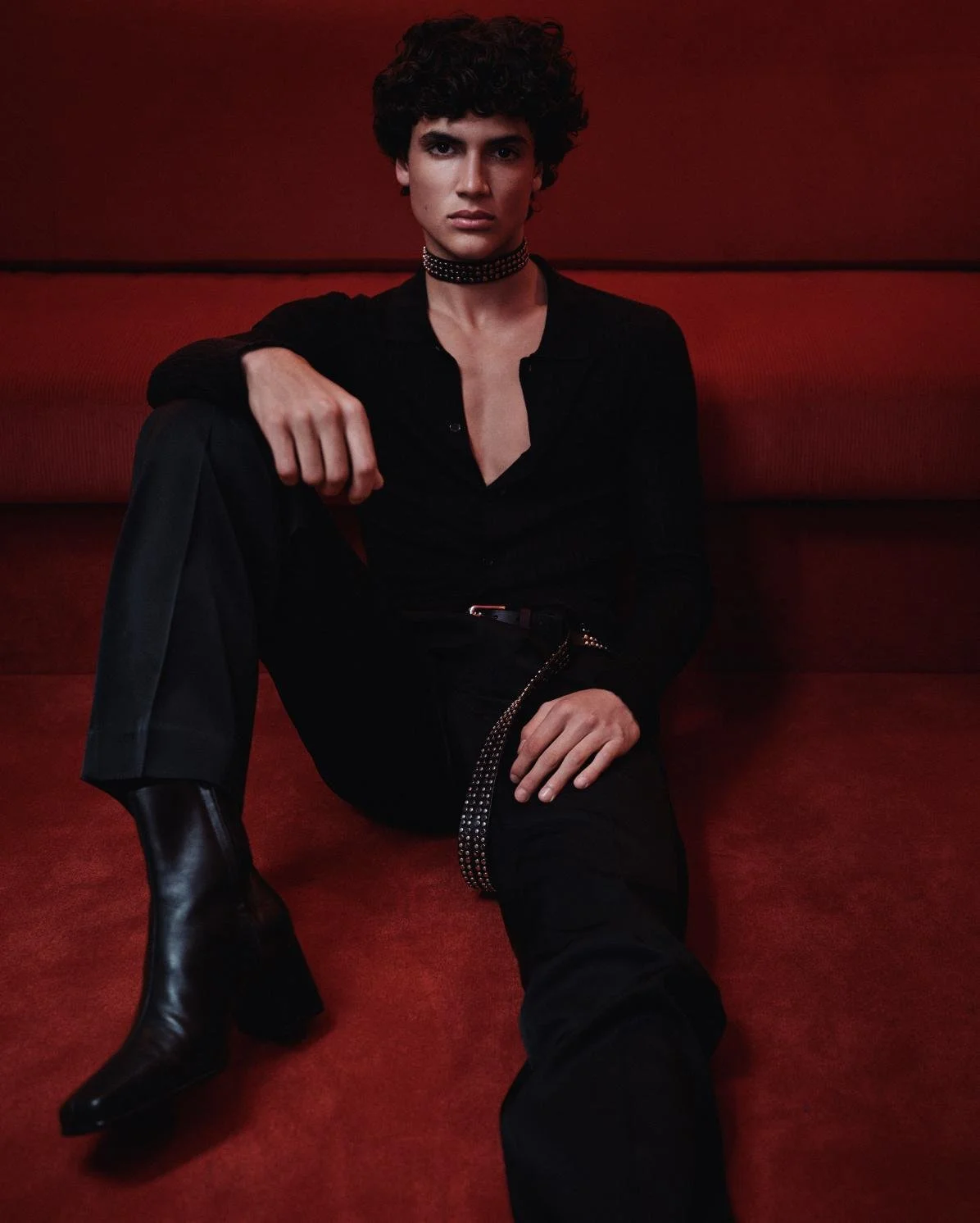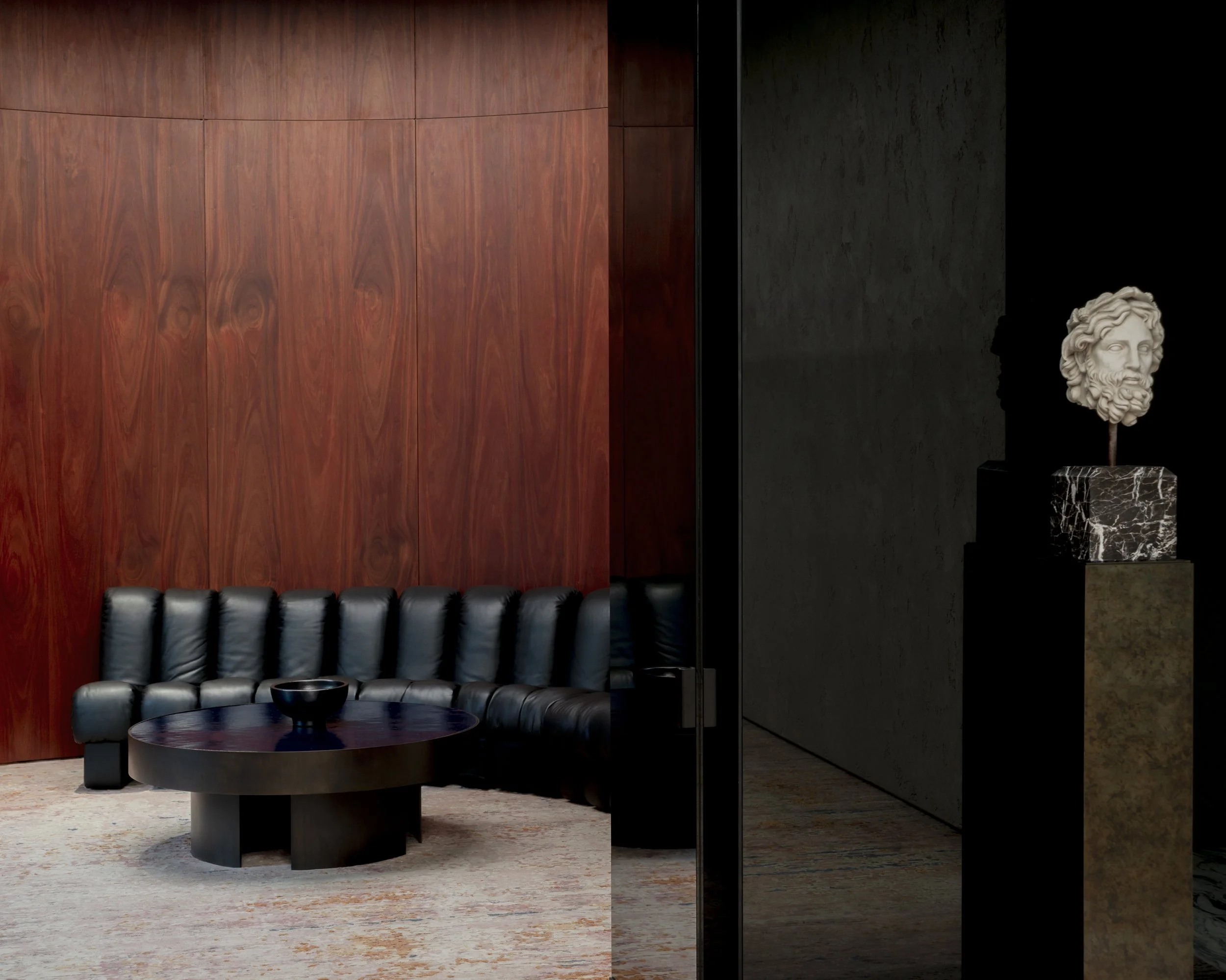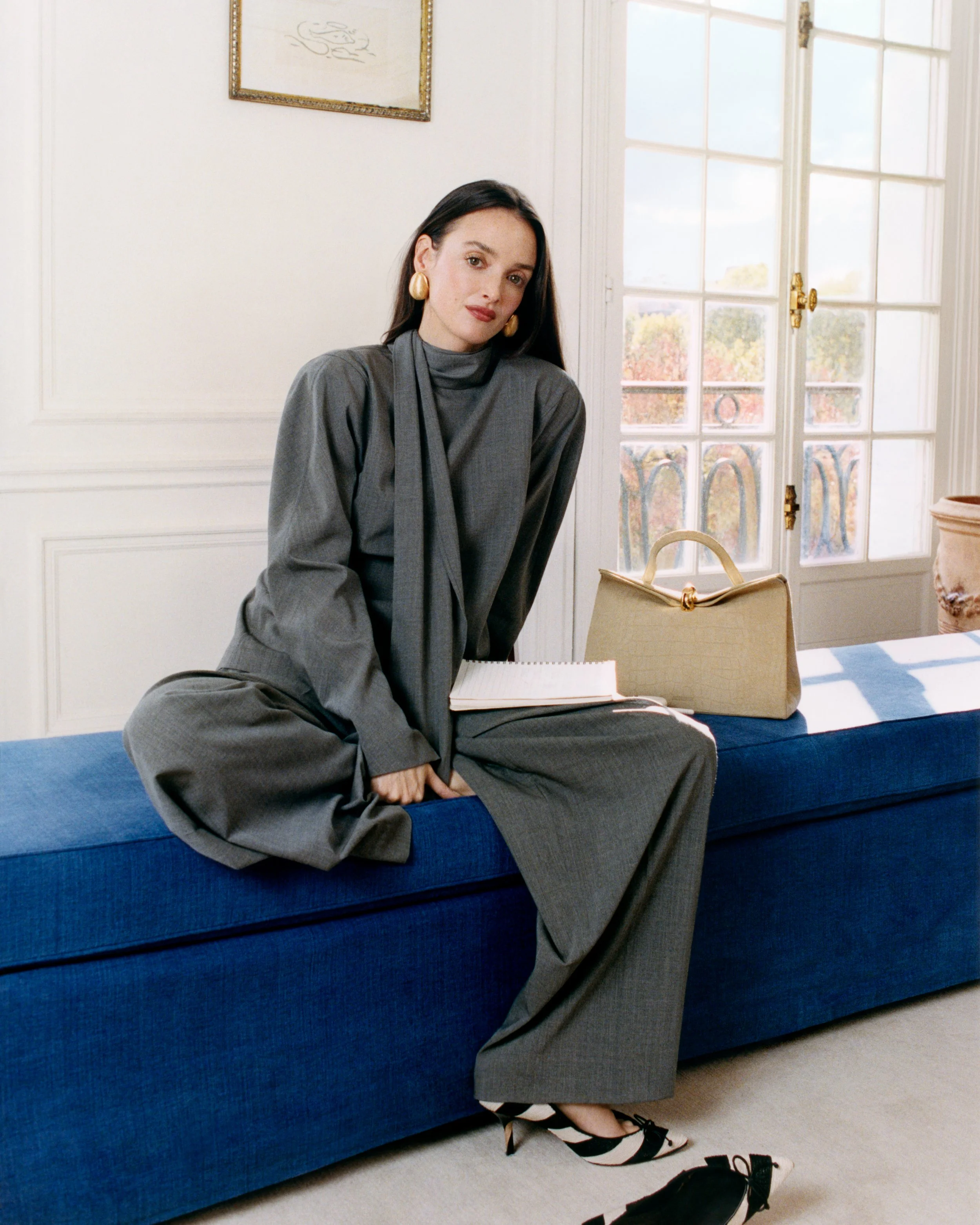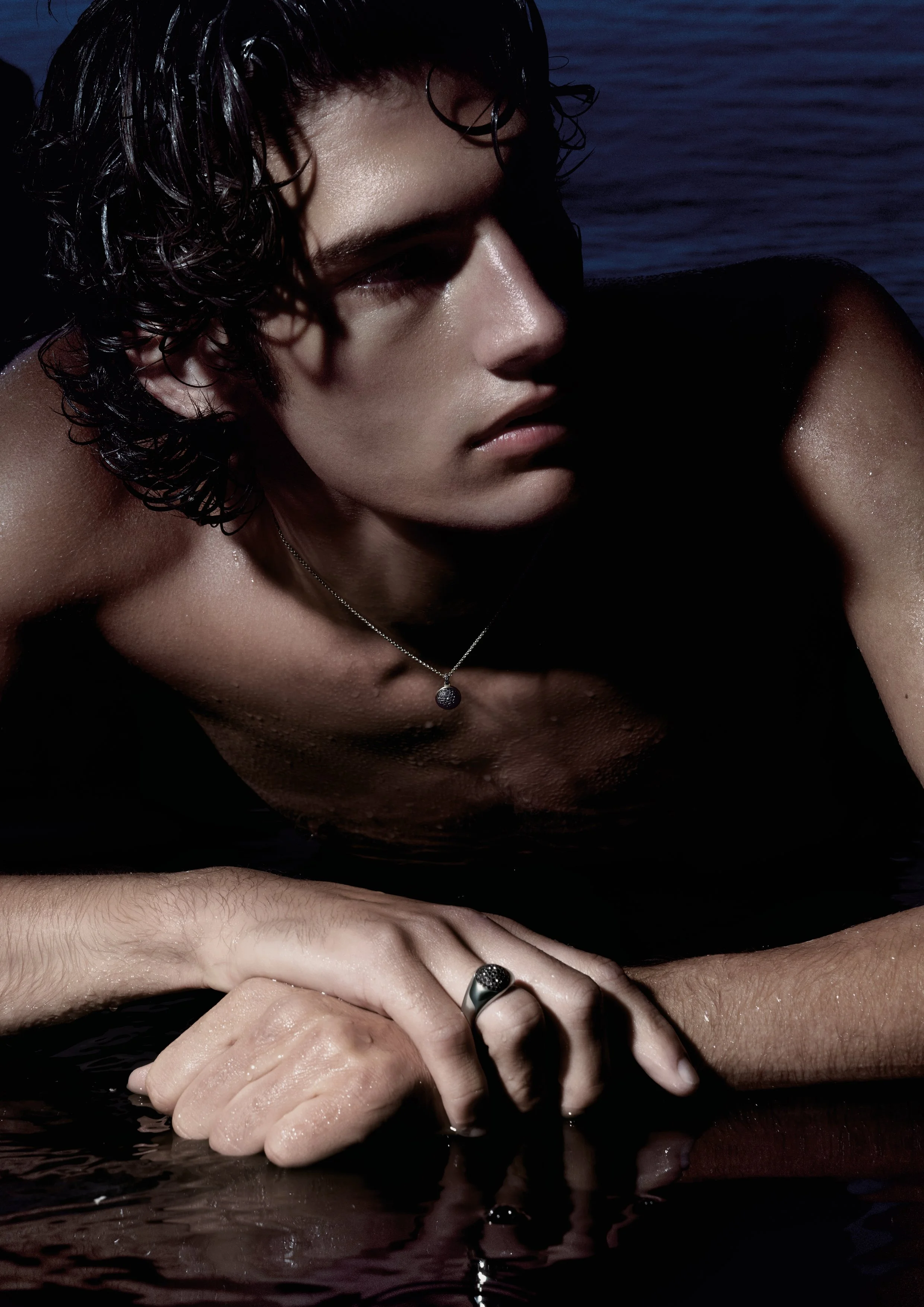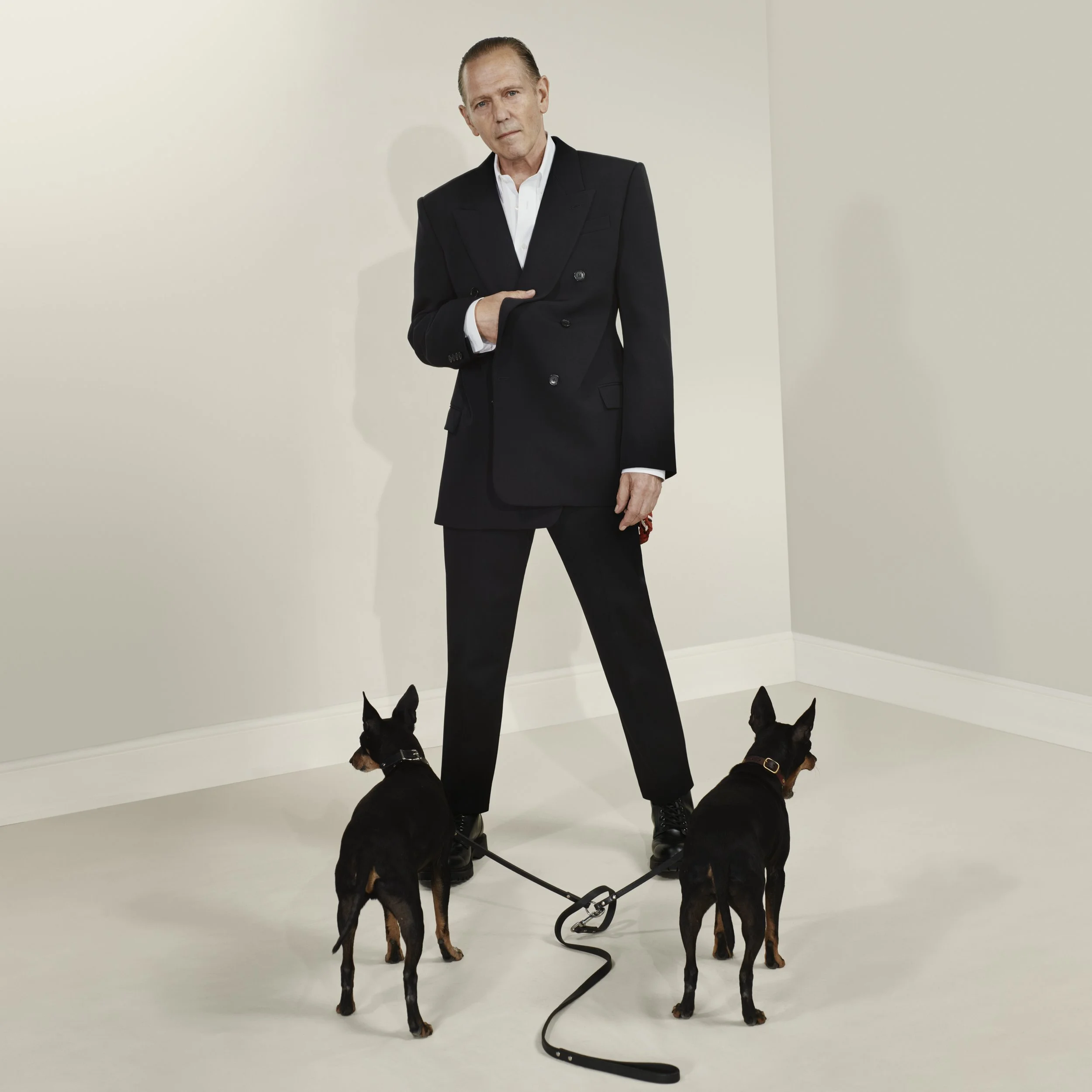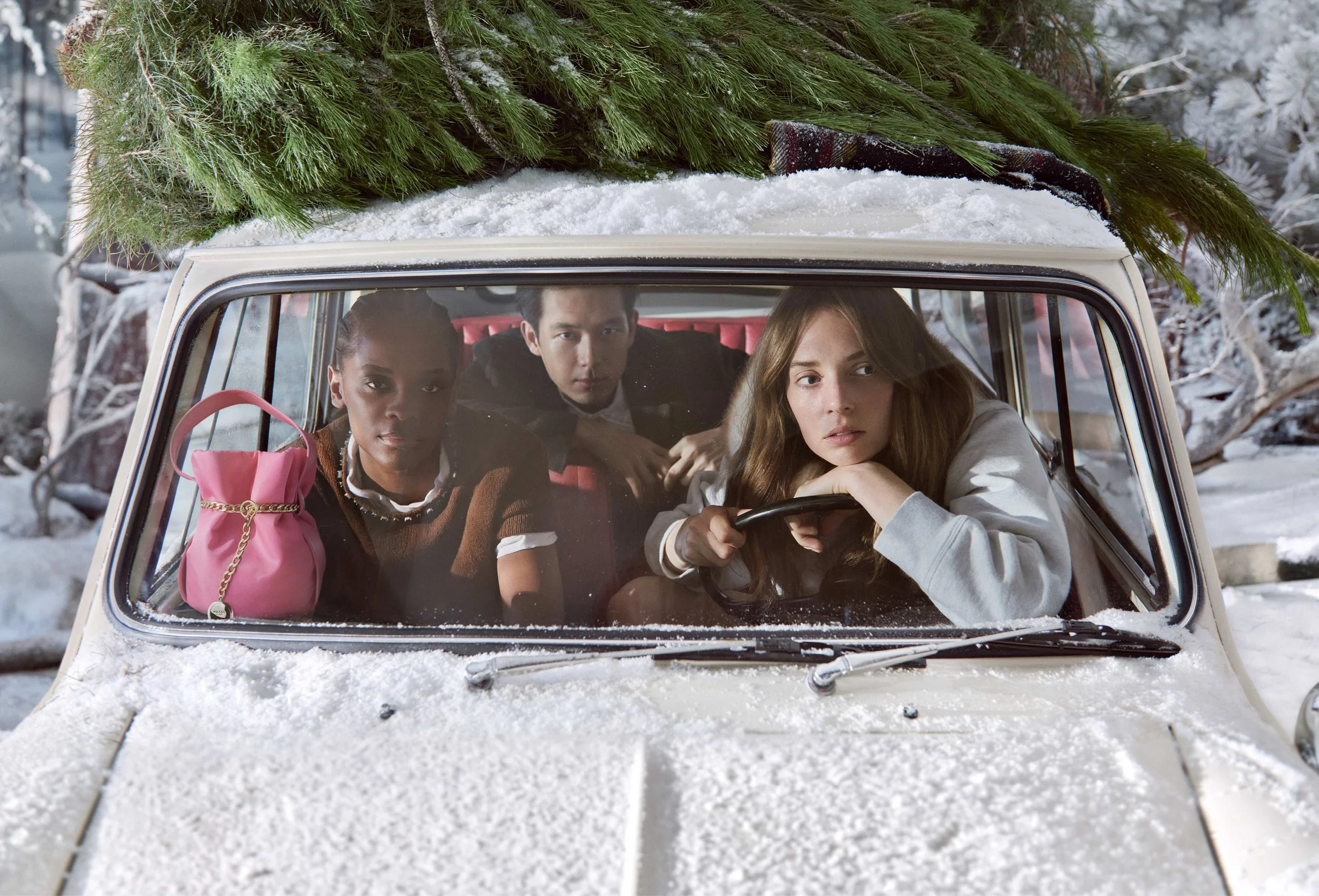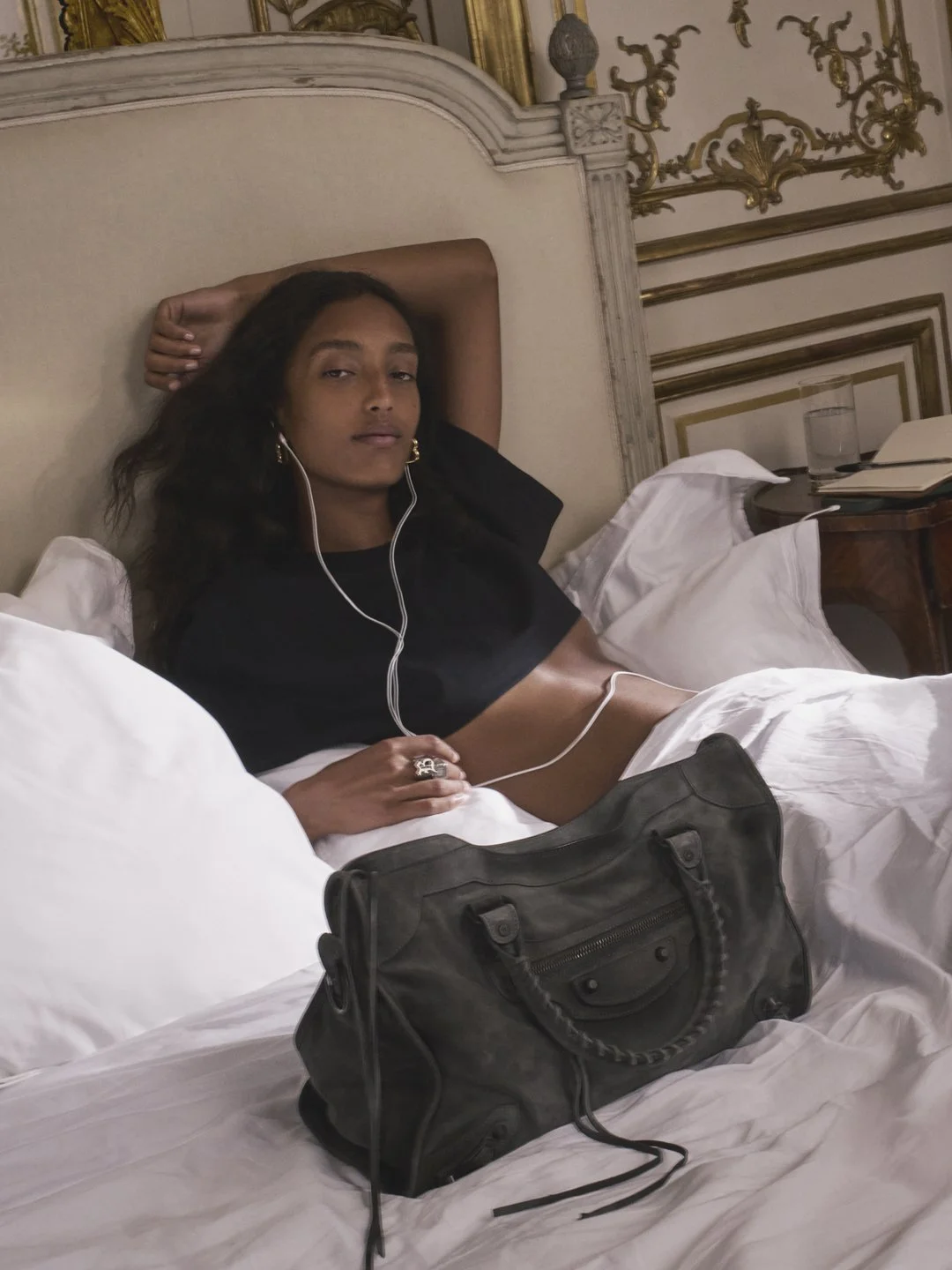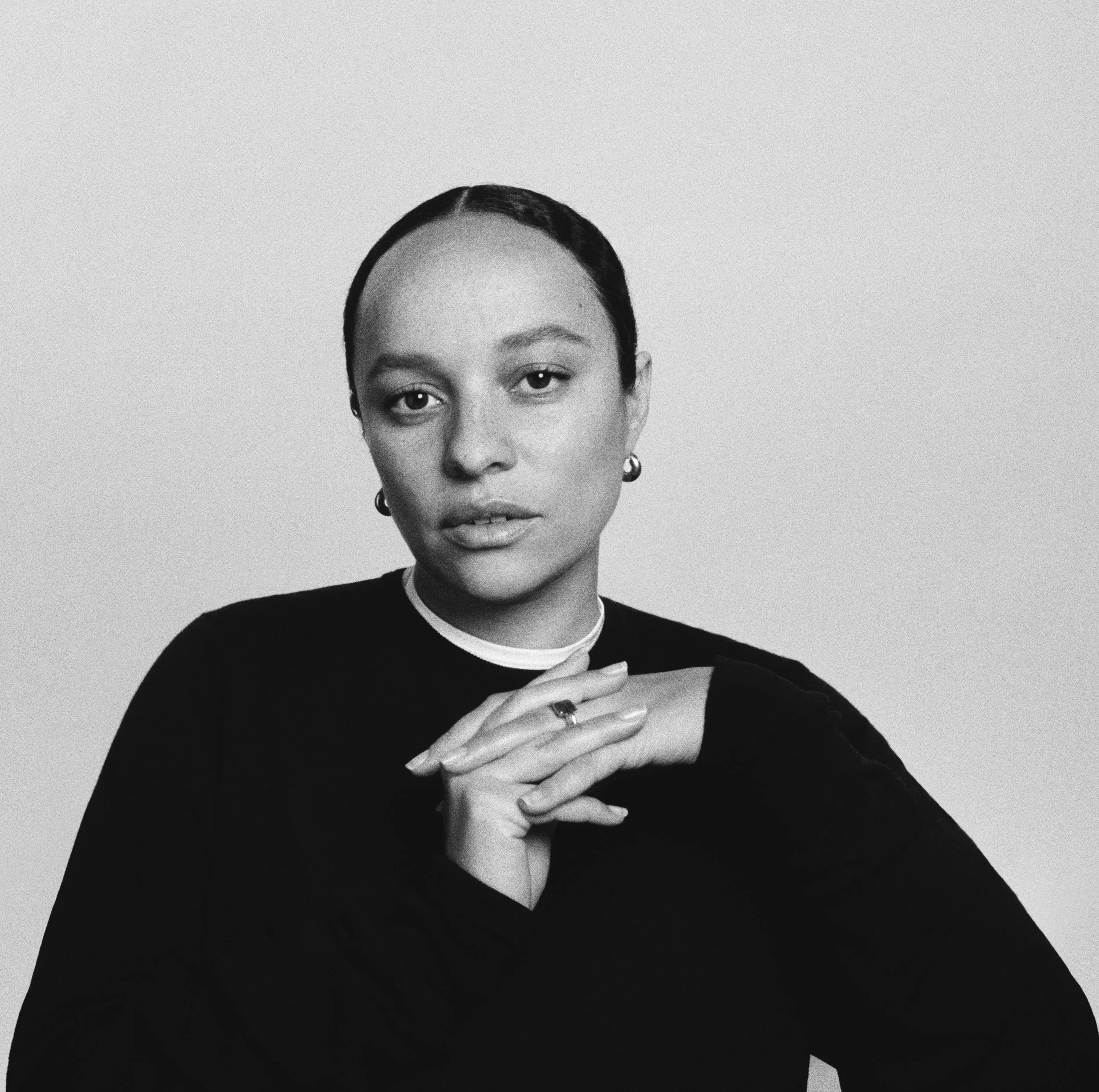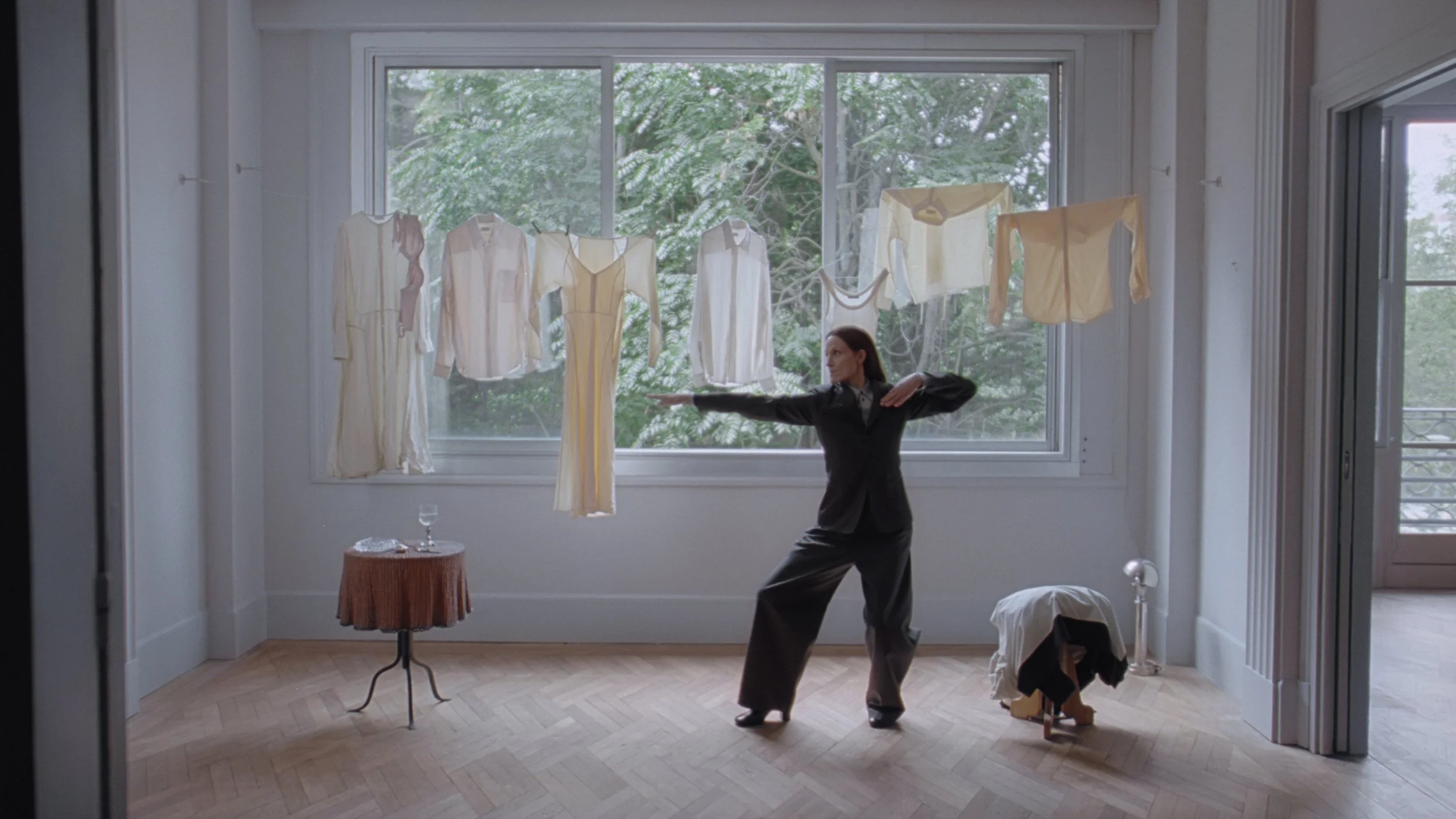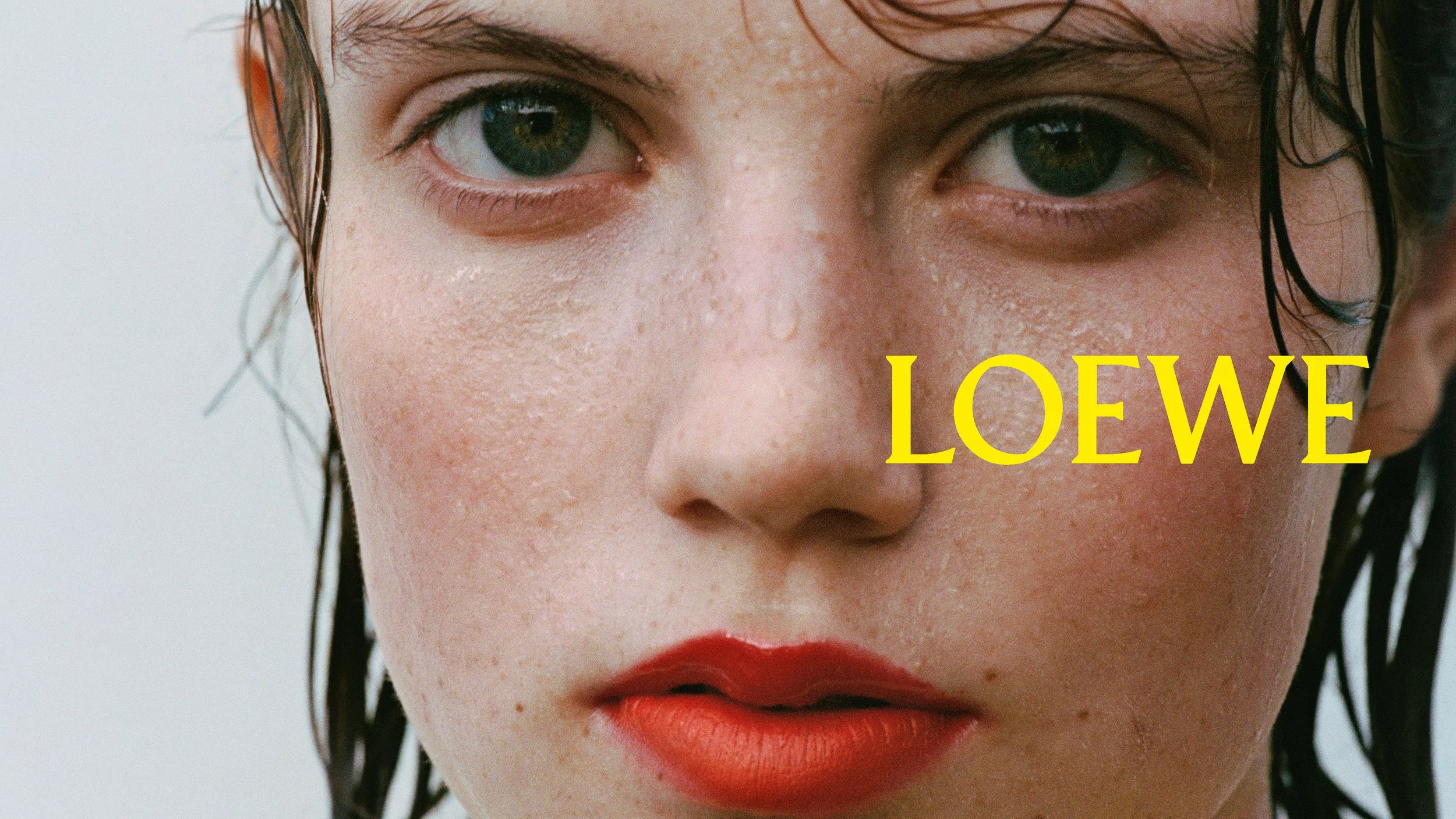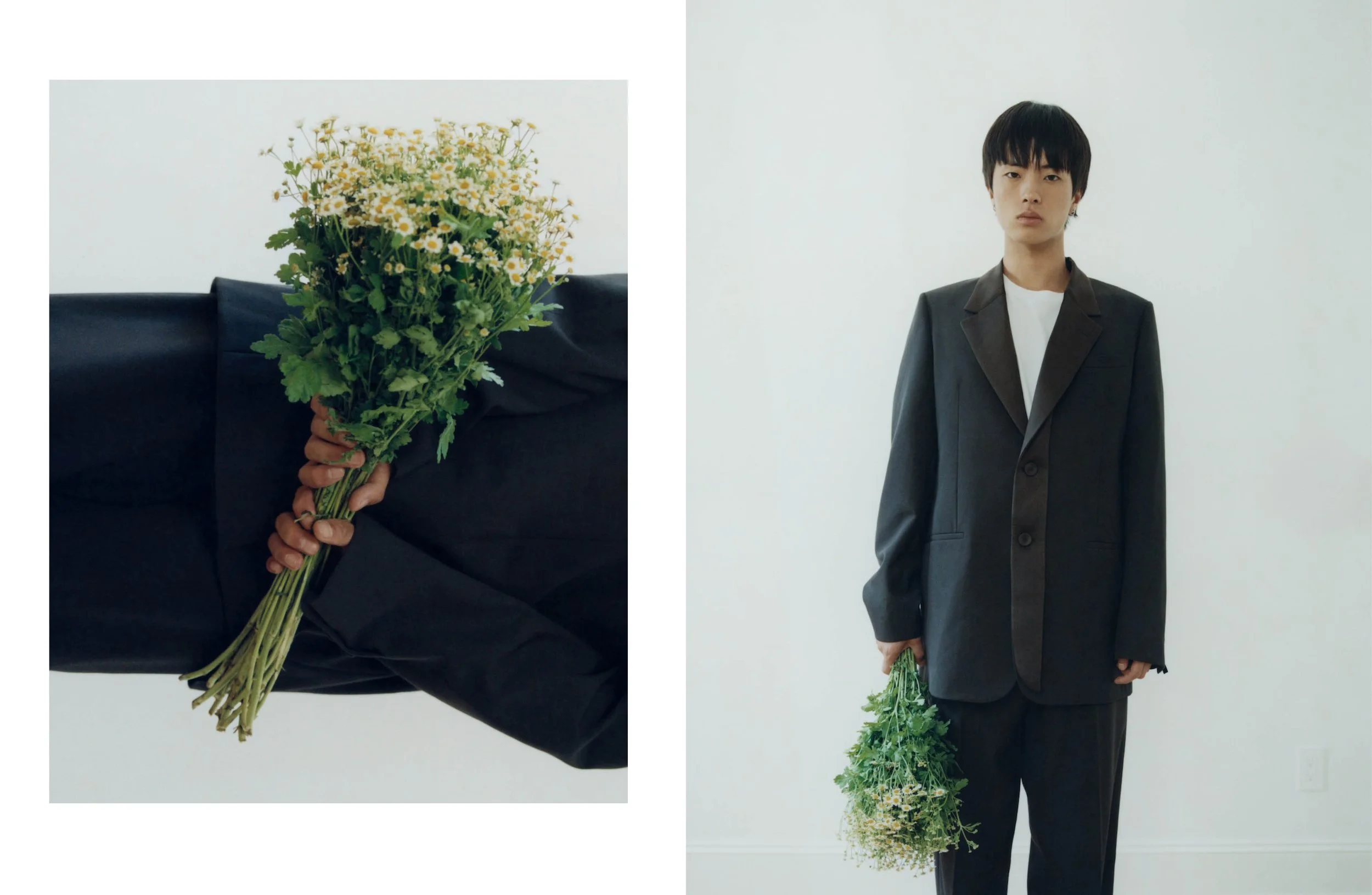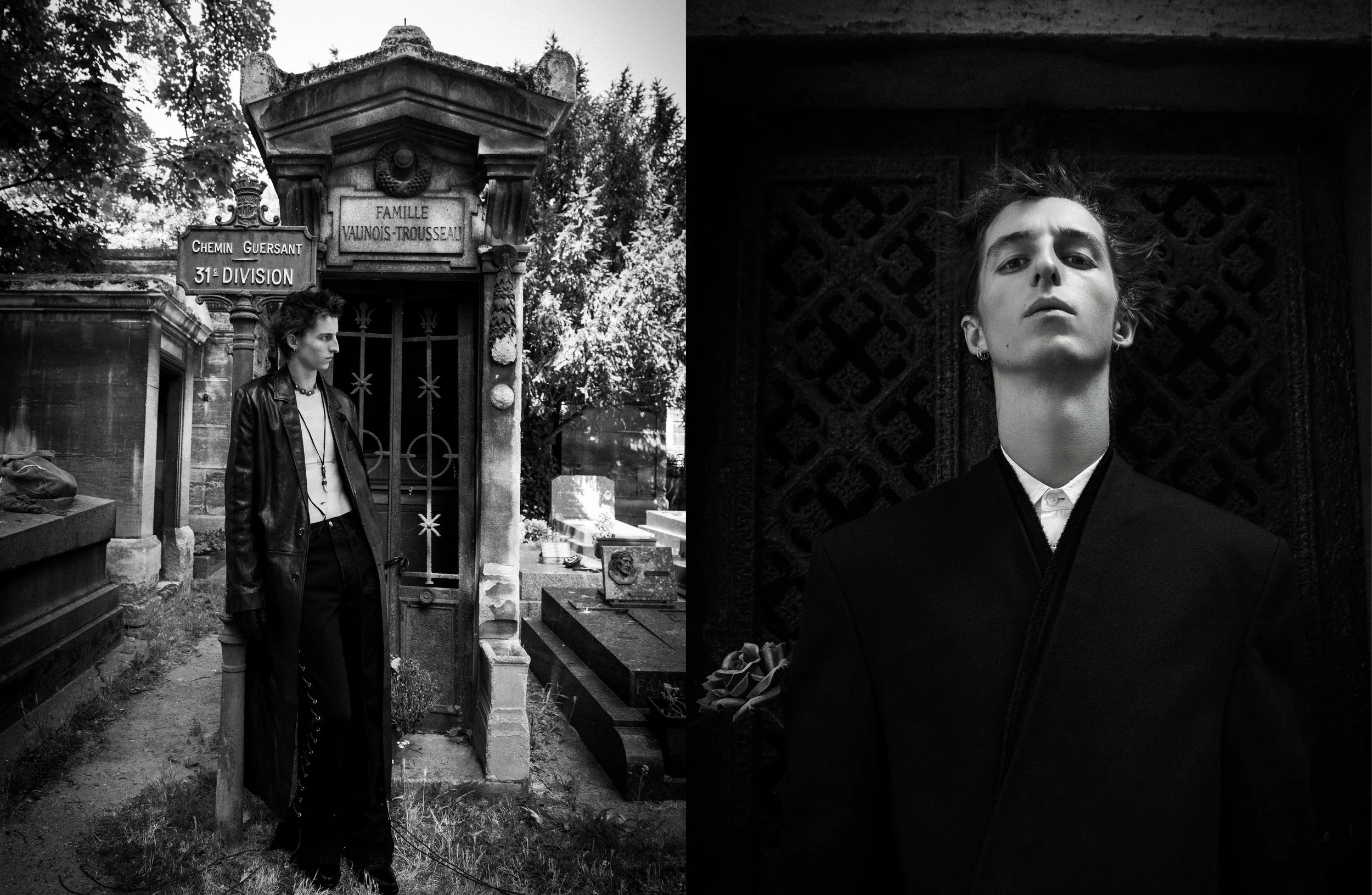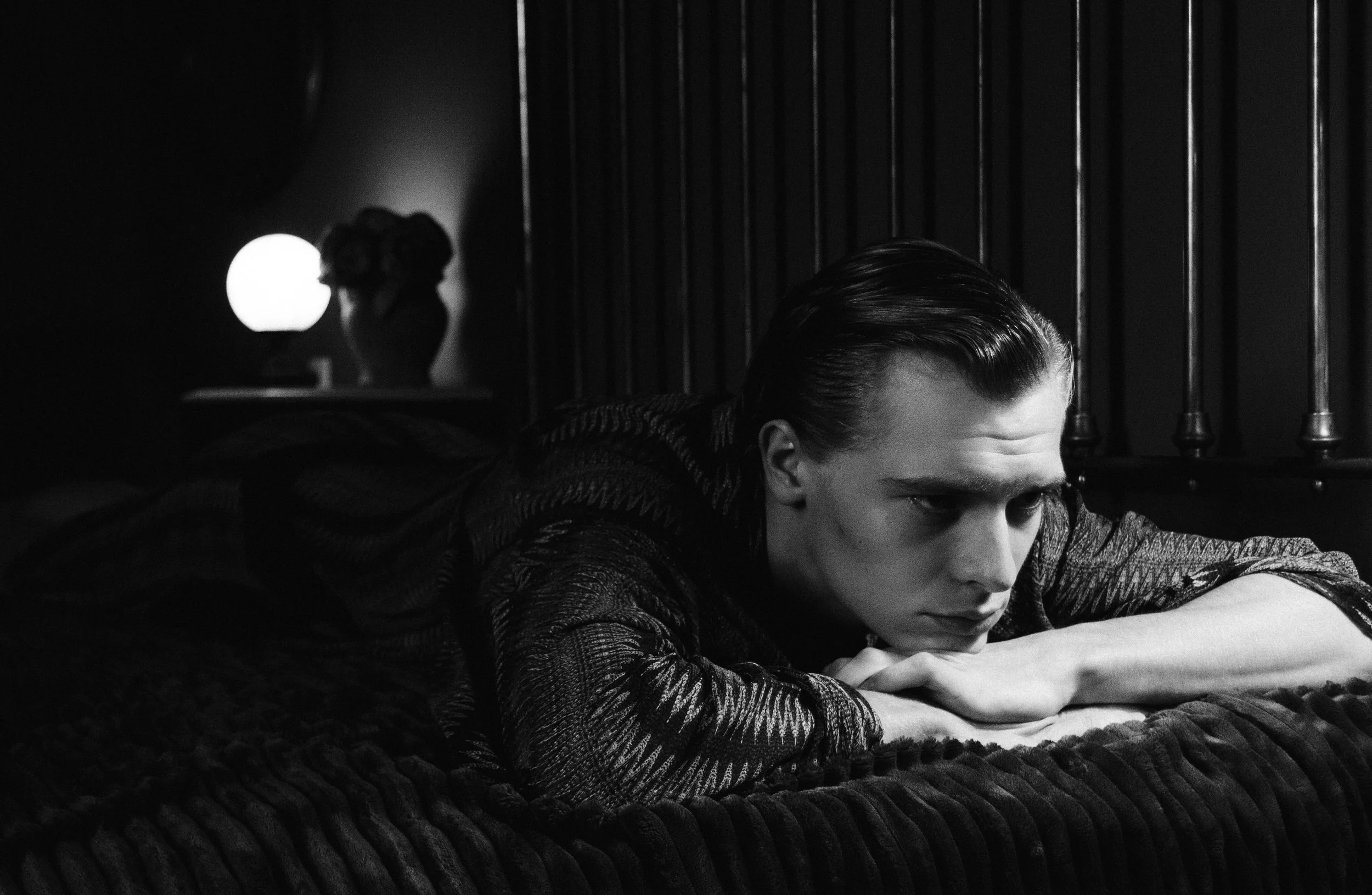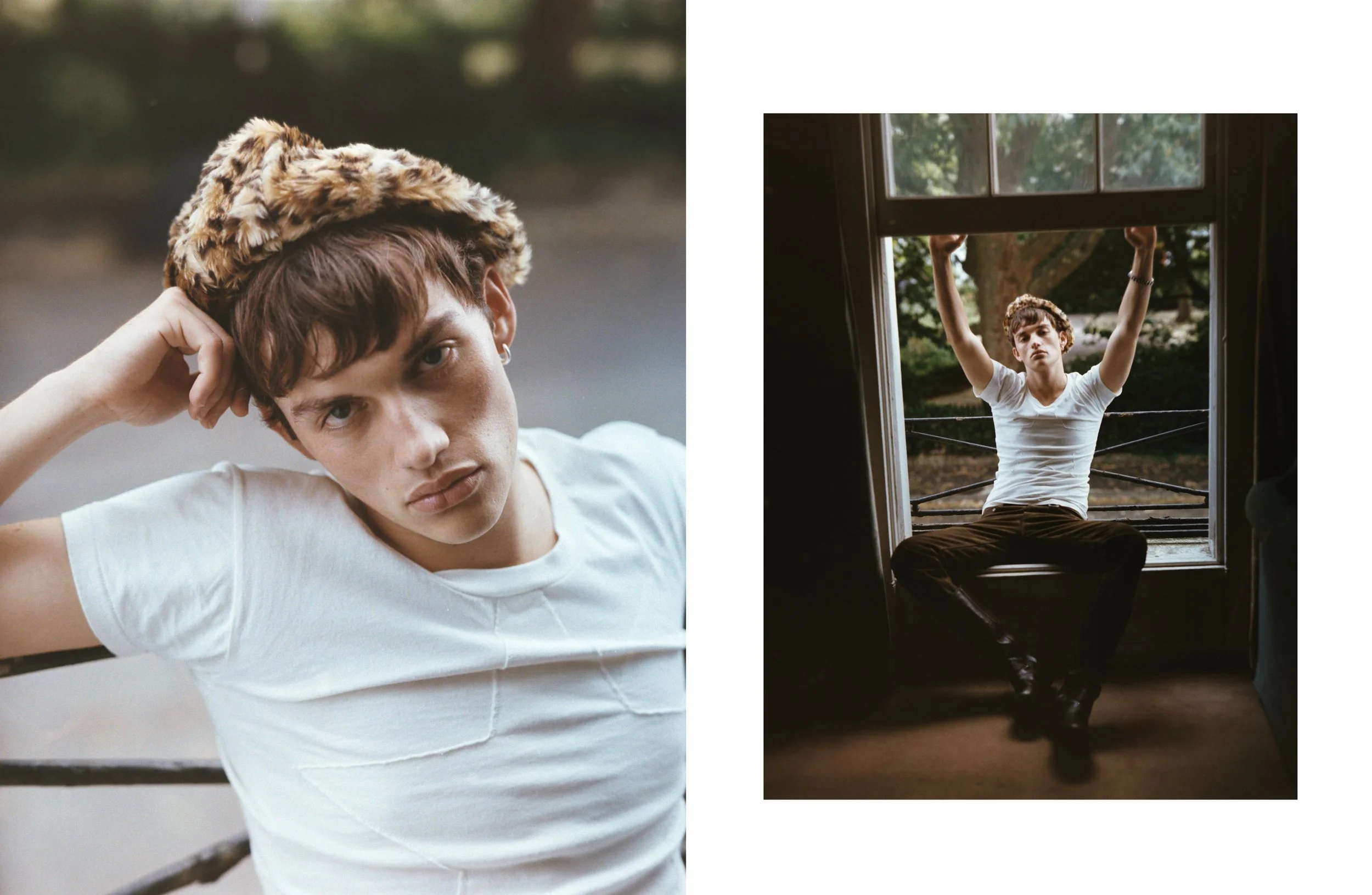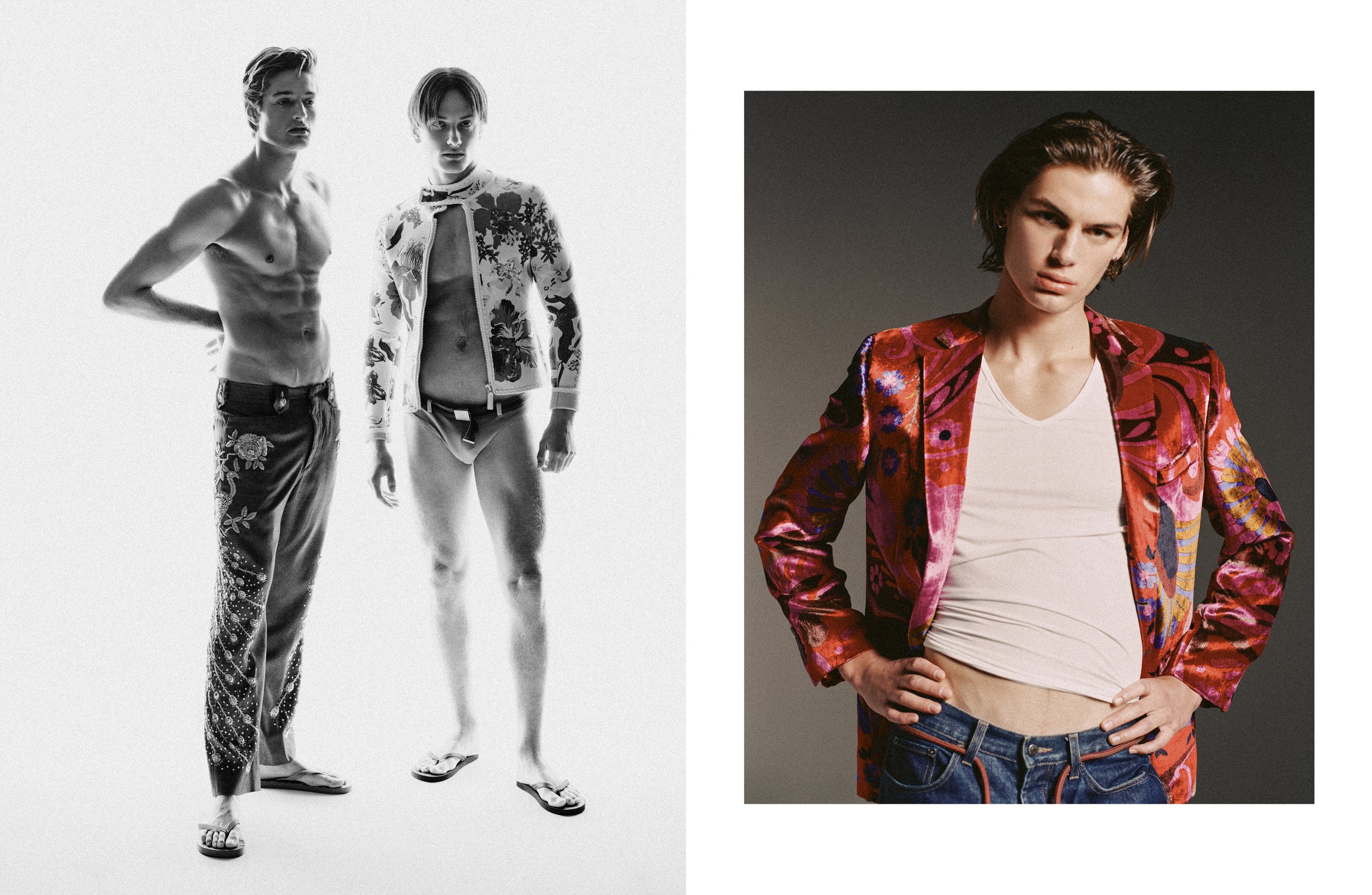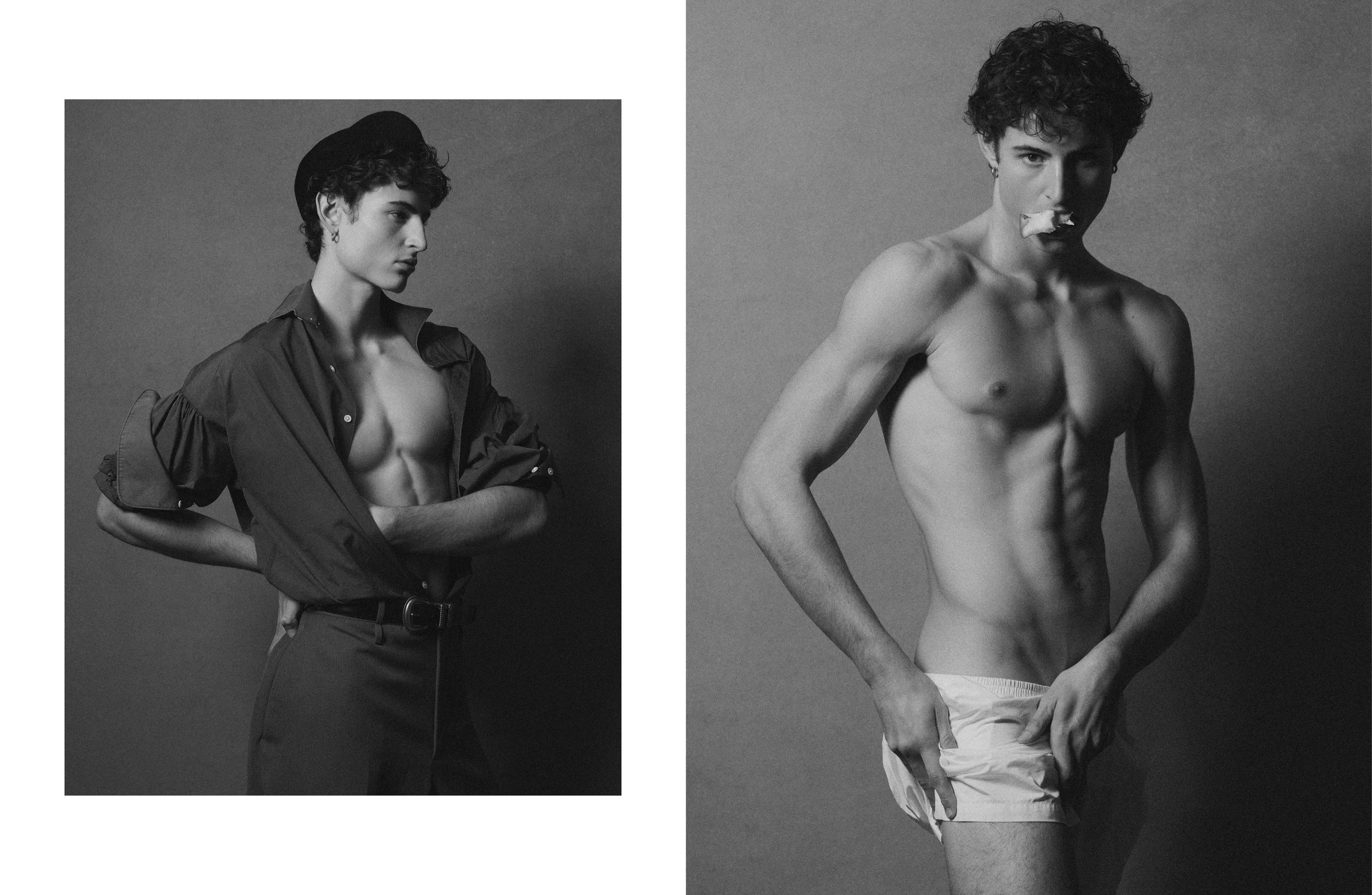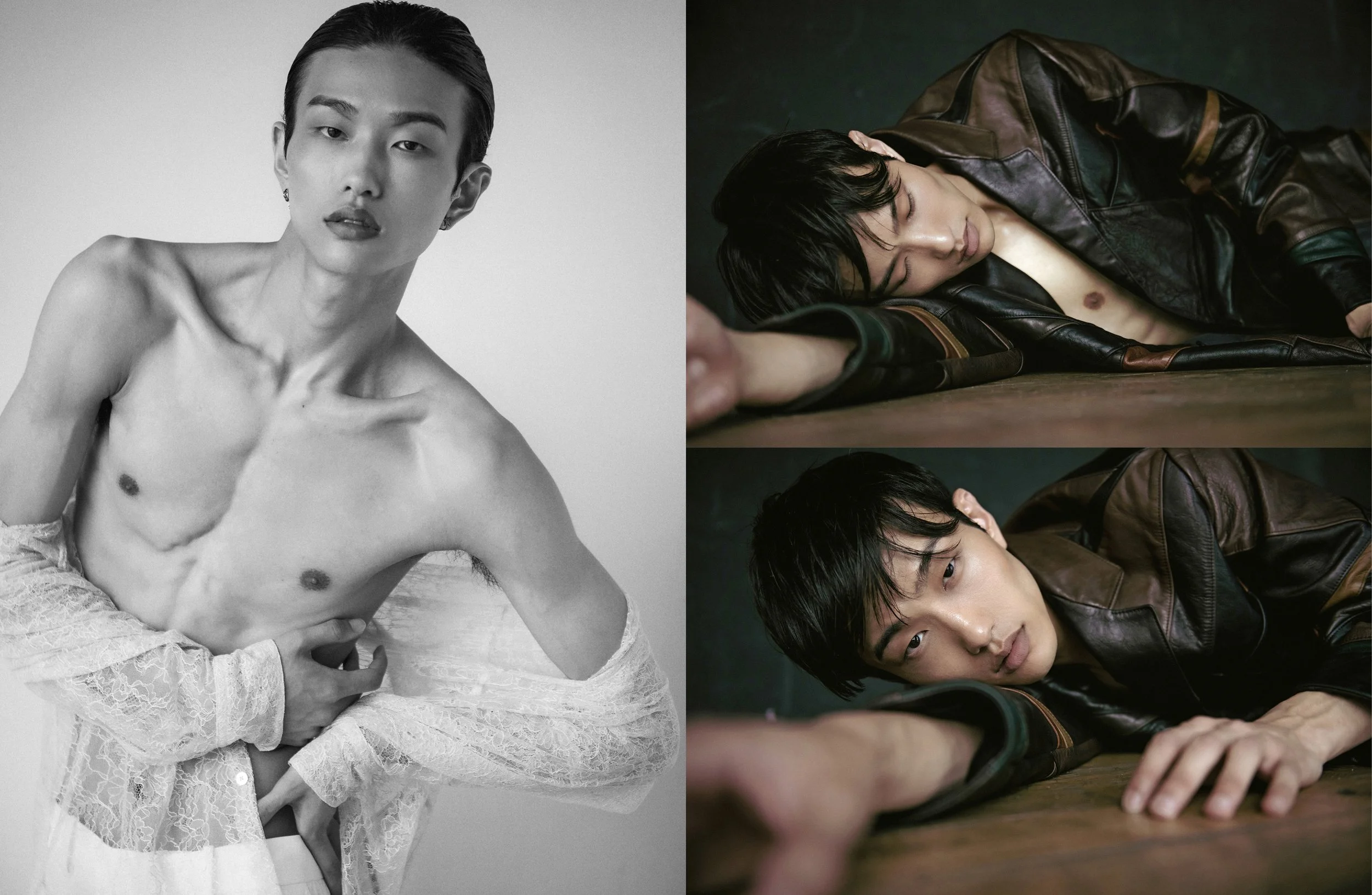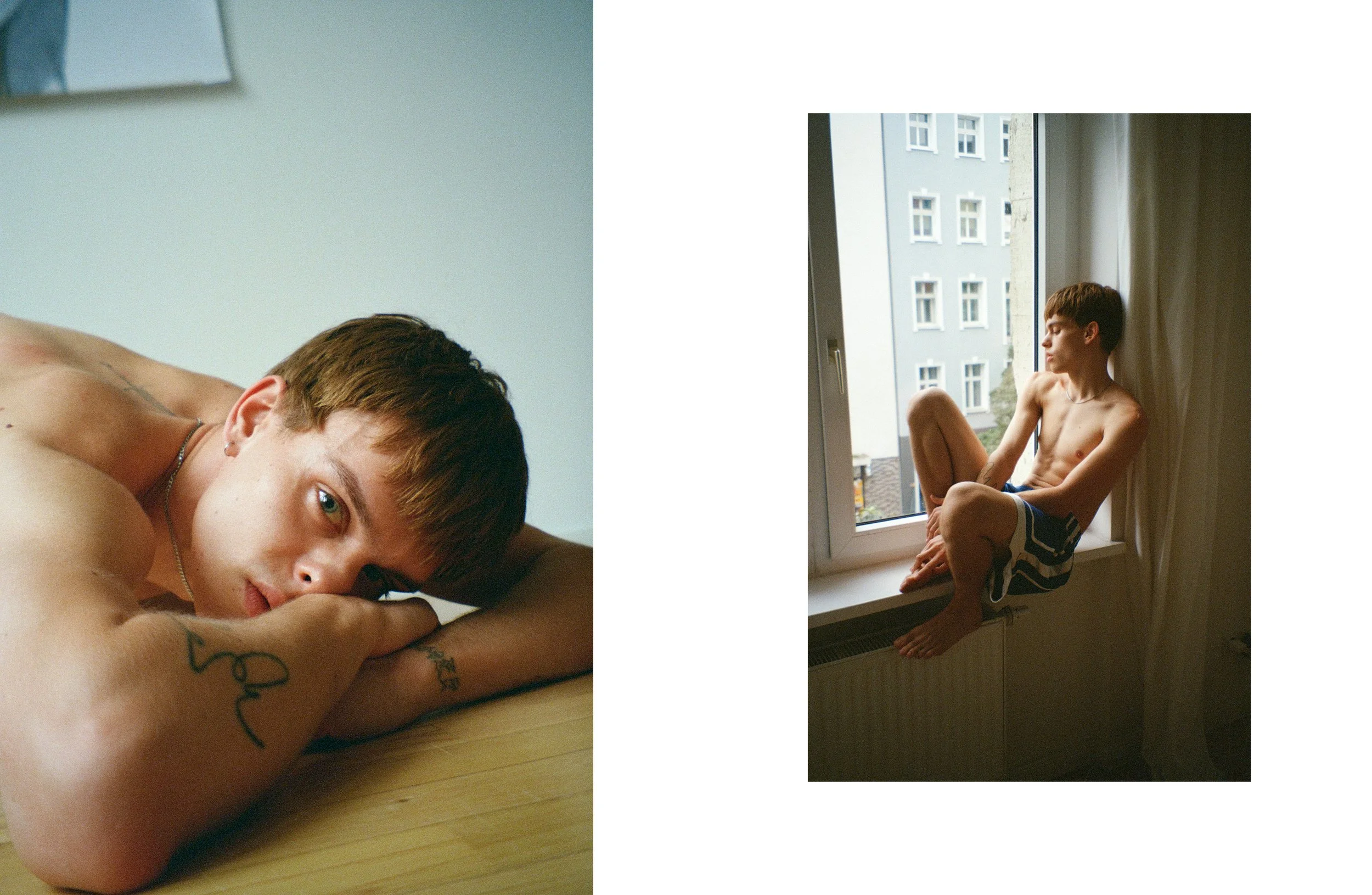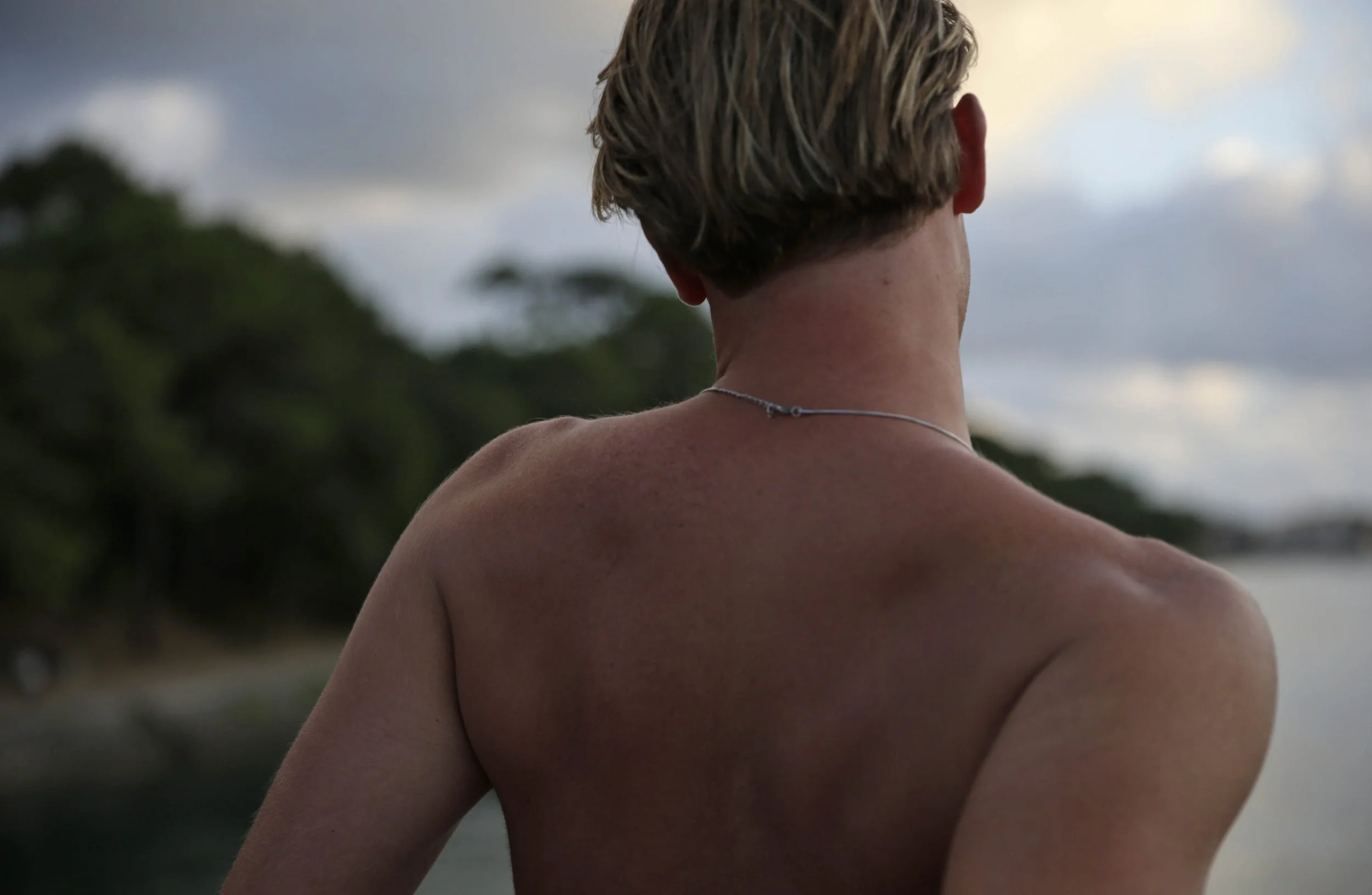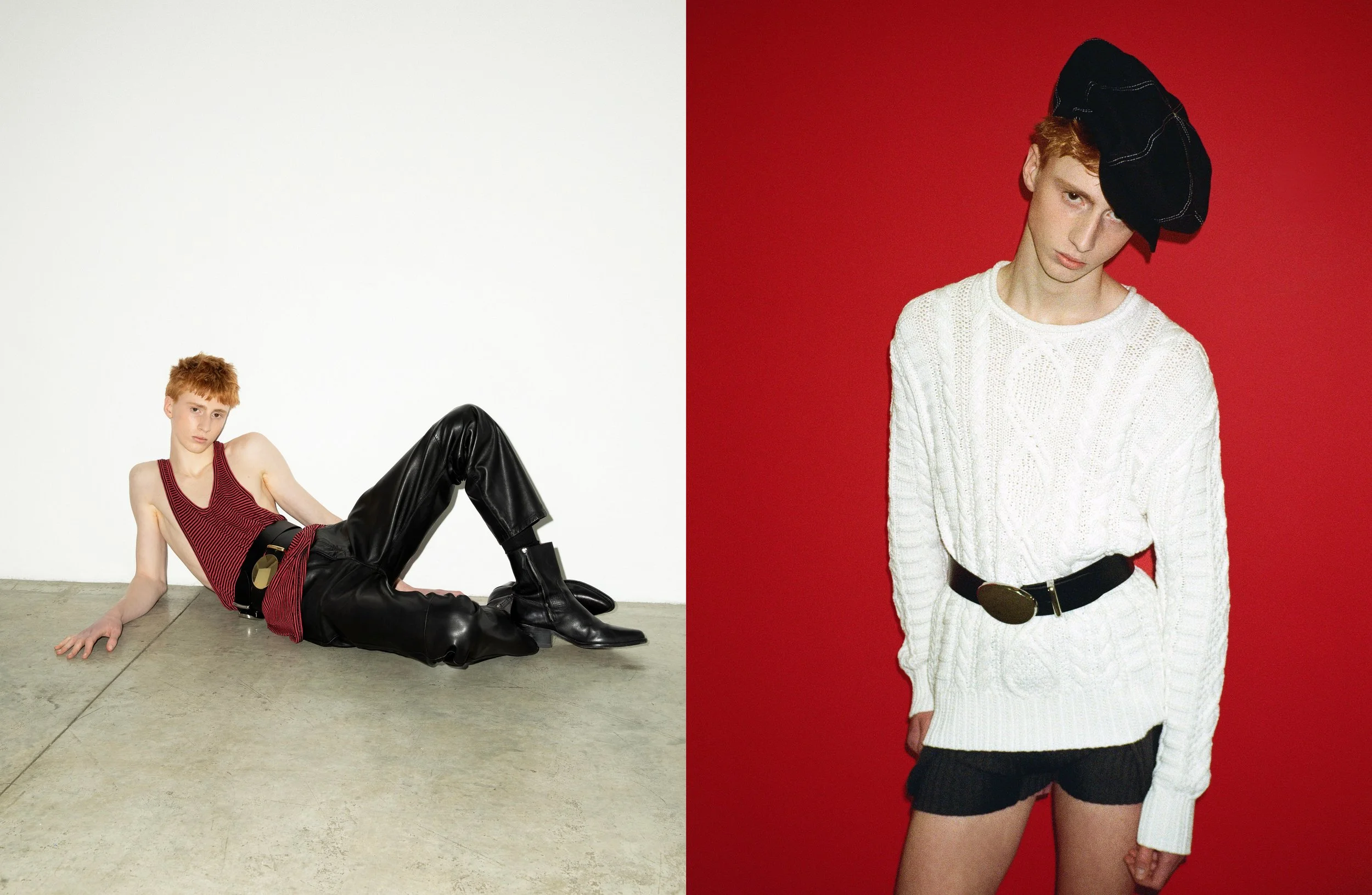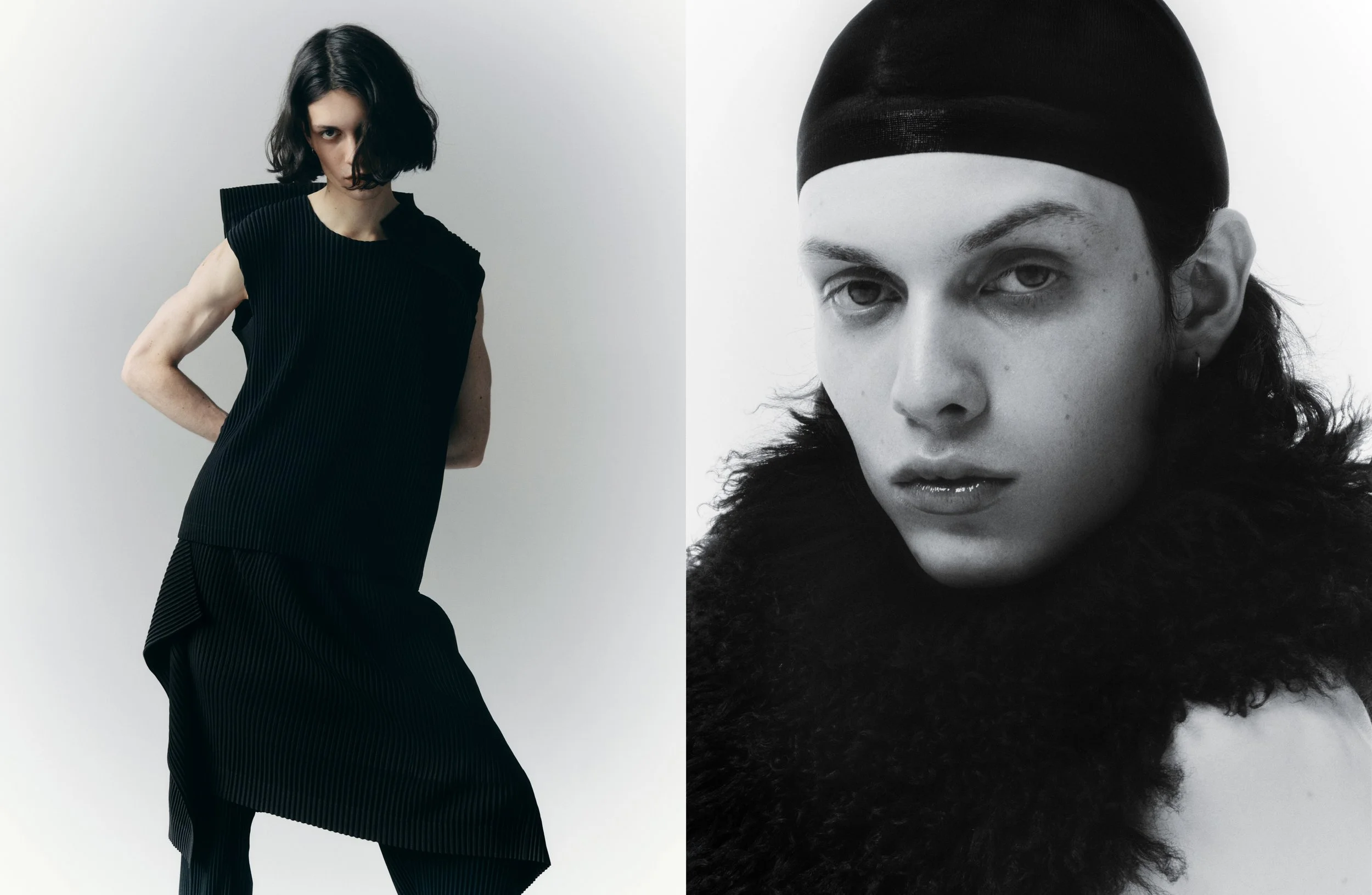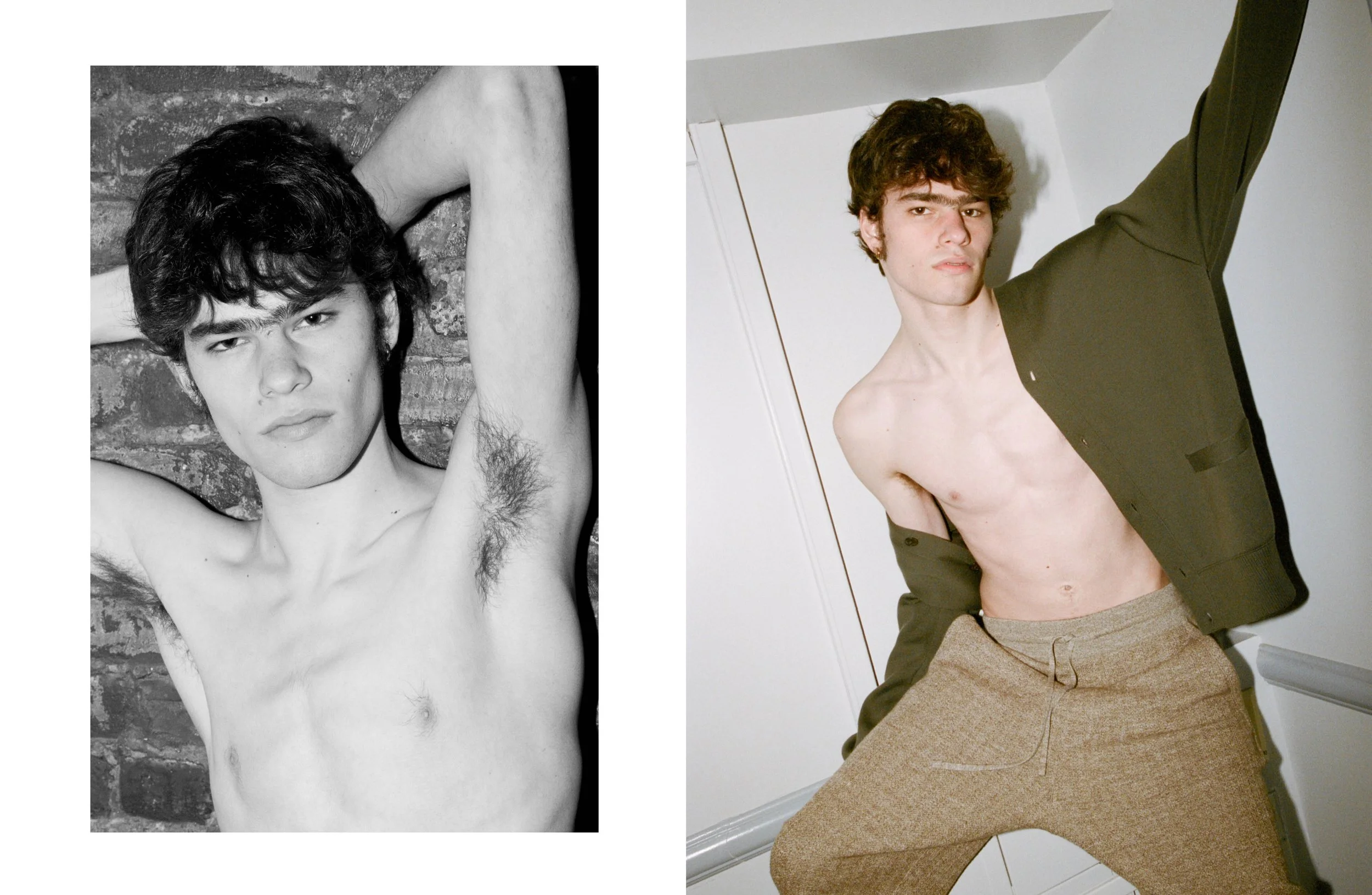SUBTLETIES CAN BE RESOUNDING. ON THE PERIPHERY OF OUR CONVERSATION, MARCUS RUTHERFORD SOFTLY, YET STEADFASTLY, PRAISES AS MANY FELLOW THE WHEEL OF TIME ACTORS AS POSSIBLE. BEFORE HE EVEN MENTIONS THE TRIUMPH OF HIS CHARACTER, PERRIN AYBARA’S FOCUS EPISODE THIS SEASON, HE HIGHLIGHTS TWO CORE CAST MEMBERS WHOSE SEASON-TWO SPOTLIGHT EPISODES WERE NOT PROPERLY CELEBRATED DUE TO THE 2023 SAG-AFTRA STRIKE. HE SPEAKS OF HIS OWN LEADERSHIP WHILE FILMING, BUT NOT WITHOUT ALSO PRAISING ANOTHER CASTMATE’S LONG-STANDING LEADERSHIP, SENSITIVELY NOTING HIS DOING SO IN HIS SECOND LANGUAGE, A CONSIDERATION HE SAYS, “PEOPLE DON’T [OFTEN] REALISE.” MUCH OF OUR CONVERSATION CENTRES AROUND LEADERSHIP THAT IS STILL AND SYMPATHETIC; HE REFERENCES VIGGO MORTENSEN’S ARAGORN AS THE “PINNACLE” EXAMPLE. AS WE EXPLORE MORE OF PERRIN’S ARC THROUGH PRIME VIDEO’S THIRD SEASON, WE FIND A LEADER NOT UNLIKE ARAGORN WHO UNITES THROUGH HUMILITY AND EMPATHY…AND BECOMES LESS OF A “SAD BOY” TO MARCUS’ RELIEF. LIKE PERRIN, THERE’S SOMETHING ABOUT MARCUS THAT MAKES YOU WANT TO FOLLOW.
Left Full look Dior Men
Right Jacket LGN Louis Gabriel Nouchi, shirt Denzil Patrick, pants Brioni, shoes Manolo Blahnik
Hi Marcus! I was already a fan of The Wheel of Time, but season three is insane!
I always think it takes so long to come out, and [once it did] I was like, “People still remember!” It's been a really nice response so far.
It has been so long since you filmed that I imagine you could almost forget about the outcome. How does it feel now that you get to see the result?
So much changes [between filming and release], and you don't know what the appetite will be for certain things. The landscape of TV shifts quite quickly, and you wonder if people still want to be watching fantasy. There are so many different storylines as well. Some people didn't film in places like South Africa, where the Aiel Waste and Rand’s storyline is. Some people were just in Prague. You're kind of watching the episodes like, “Where the fuck was that? Where is all this being shot?” So it's quite nice to see that the characters have gone completely different places, and when those episodes come out, I’m like, “Oh, okay, that's what they were up to!” [Laughs]
It must also be odd because when season one was released, it was during COVID, and then season two was released during the SAG-AFTRA strike. This is the first season where you've been able to experience a bit more of an uninterrupted reaction.
Yeah, for sure. It was really weird with COVID. We had a premiere, but you could only have a certain number of people. It was quite hard with people isolating. You couldn’t celebrate anything. And then for season two, you couldn't share trailers and all the behind-the-scenes images. It was really sad, particularly with Zoë [Robins] and Maddy’s [Madeleine Madden] characters, because they had standout moments in season two. The people who saw it loved it, but there wasn’t a push there. I think it's really hard for the crew as well and the production team when you feel as though it's such a long process, and then it's just out on Amazon, but you haven't had a real physical moment to celebrate it. Social media is quite weird, but it is good for those things. You can start to get people to make noise. If you have a show like The Wheel of Time, where it's so international, you all start posting and sharing stuff, and just create a nice energy for the fans. For season three, we did a little fan screening in London. It’s been nice to celebrate it.
You mentioned it being particularly hard for people who had standout moments in season two, and obviously, you have a spotlight this season in episode seven. Your character, Perrin, goes back home to the Two Rivers. Before we get into Perrin, as Marcus, what do you think of first when you think of home?
I think there's an idea of comfort. There's a protection. I think that's actually why Perrin decides to go back home in the show. He steps away from the duty of everything that he's been thrust into in seasons one and two. I think there's something in knowing your identity in going home. You feel connected. It’s weird; I've got family in Jamaica, and I didn't grow up there, but if I go there, I feel connected. I think there was something about the character going back, but also myself as an actor, going back to that same 2019 set. We had different cast members, and it was pre-COVID. There were so many things that happened in the world since then. People on the show have since gotten married or had kids. There was a sort of mirroring of my experience and Perrin’s. I didn't think I'd changed, but I realised I had when I came back to the set. I think Perrin doesn't think he’s so different, but he is this worldly guy now who's been travelling. When he returns to his village, people look to him now as someone who's seen and done other things.
Blazer, shirt and pants Giorgio Armani, scarf N°21, shoes Grenson Shoes
The parallel is interesting, especially in that you didn’t think you had changed but realised you had. Do you remember the first vivid thought or feeling you had going back to the Two Rivers set?
There’s an episode where we all walk back into the village, and I remember walking onto that set. I remember knowing it. I knew quite a lot of the crew, and I knew how the cameras were going to work and the placement of things like, “Oh okay, we've got a smoke machine there,” or “There are animals there.” In 2019, there were just so many people. It was the pilot episode, and you had people from Sony and Amazon there just making sure everything went well. This time, it almost felt quieter and still, even though a lot is going on in the storyline. When I was twenty-four, I remember thinking there was just so much going on and so much to act. There were a thousand people behind the monitor, watching the performance. It felt a lot more intimate this time because of the different storylines throughout the season. It felt like we'd gone back to this quiet little village, and there was crazy stuff happening elsewhere.
Something so interesting about The Wheel of Time in terms of that intimate nature is the internal monologue that you get from a lot of the characters. Do you remember a very prominent inner dialogue of your own that you had while filming a particular scene?
There's a scene in episode three where the villagers want to go back to their farm. Perrin says, “You’ll die if you go,” and they're not really listening to him. I think it required a different vocal tone and physicality. Until then, I hadn’t really raised my voice to that extent. I remember one of the young lads — Wil [al’Seen] played by Iman [Marson], says, “What do we do?” And there's this moment where Perrin has a load of people looking to him. I think it mirrored that conversation with Rand in episode one, where he's like, “I can't do that. I can’t have people looking at me and asking what to do and what's next. I just don't have that in me,” but he does have that in him. I think that's what's quite nice when he meets Faile. She sees that there's something in him that he can't see in himself.
There was always this inner monologue of leadership. I didn't want him to be this big king, warrior-type leader all of a sudden. There’s something amazing about leadership that can be quiet and subtle. I've always loved Viggo Mortensen’s performance of Aragorn in The Lord of the Rings; it’s the pinnacle. I think he's the ultimate leader, but there's something so still and calm about it, which almost demands more respect. Perrin has also been quite uncertain about himself, and now there's a bit of certainty in how he looks and how he acts, and his eyes have changed. There's something a bit more complete about him. He's not like, “What am I?” or “Where are we going?” or “What are we doing?”
I like that you mentioned the leadership part. What specifically about Perrin would make you want to follow him as Marcus?
There were moments when I asked myself if he should have these massive rallying speeches or if he should shout more. There are moments when it happens, but I think what's so lovely about him is that he just knows what to say to everyone. I think that is the ultimate kind of leadership. There’s versatility in being able to talk to Alanna and Marin and Loial and have these nice conversations. There's such strength in being able to adjust yourself and to talk to people on their level. That's a social skill in life that is incredible. Perrin can make these little kids not scared anymore, or make Loial feel seen, or make the boys feel proud to be from the Two Rivers, or help them know that the Thuatha’an philosophy does make sense even if their people are dying. I’d be drawn to that.
Left Jacket Kenzo, shirt Denzil Patrick
Right Shirt, sweater and tie Fendi, pants Filippa K, shoes Jimmy Choo
This is earlier in this season, but I think his conversation with Alanna is particularly striking when they talk about grief. How would you describe the way Perrin’s relationship with grief changes this season?
That’s one of the scenes that a lot of people have reached out to me about. I think it was really beautiful because I hadn't filmed much with Priyanka [Bose] before, but there's something really exciting about different characters crossing paths. You've got someone like Alanna who is very fiery and flirty and fun, and Perrin’s quite different, but there's something really beautiful about their dynamic. Perrin has been carrying around such weight and guilt around his grief. There's something quite cyclical and symbolic and cathartic about actually returning home. He visits his wife’s grave and places the ring in the burial ground. Through previous seasons, I was initially quite worried that he’d meet Faile too quickly because he just buried his ring, but then you realise he’s been grieving for so long.
We had a joke on set that Isabella [Bucceri] is so small that when she’s standing, she’s the same height as I am sitting down. [Laughs] There’s a scene where she says a line, and Perrin is eating dinner and just looks up at her. I think that’s a very changing moment. He’s no longer this head-down, grief-stricken, guilty dude. Faile comes in, and it reminds me of when Aviendha came and had a bit of a flirt with Perrin, but his brain doesn’t really process what’s happening. He's just not there yet. I remember talking to Justine [Juel Gillmer] and Rafe [Judkins] about Perrin meeting Aviendha, and we knew I was going to play it awkward, but I didn’t know if Perrin should throw some [flirtiness] back. We decided not to, which was kind of risky because we didn’t know if we’d get another season. I remember thinking, “If we get to the point that Faile comes in, that’s probably the time when he’s ready to throw flirty jabs back.” So yeah, I think that grief has been a whole cycle. It was quite a debilitating thing in him not wanting to hurt anyone or even pick up a weapon. I think that affects his leadership as well. He hasn't felt like he deserves to smile or be confident or enjoy himself. Faile slaps that out of him, which is quite nice.
Absolutely, and he gets to a place that he probably would not have expected given his fear. Is there anything this season that you did as an actor that season one Marcus would not have expected?
It’s funny, I think actors like to pretend that they’re really different from their characters, but there’s something about this show where each actor is very much like their character. Some things are different, like Josha [Stradowski] can be quiet, and I can be a bit of a joker. This season, there were a lot of actors just thrust into a big role mid-season, like Rina [Mahoney], who plays Marin al’Vere. She is exceptional in the show. A lot of younger kids came in too, and of course, Isabella as Faile comes in. I think I looked after everyone in a way, at least I hope I did. If I look back at myself in season one, starting a show, I think I was probably a bit overwhelmed. I don't think I had someone to look to or turn to. Everyone was probably focused on not getting fired. [Laughs] There was a lot of pressure at the start, but you didn't really know how to talk about things like your hair or if you should need a wig or costume fittings or stunt riding. I’d think, “I might need more horse riding lessons,” or “The fans are trolling me online. What do I do about it?” No one was really there for that aspect because we were all so new. When someone new comes in now, I've tried to be the person I would have liked to have at the start. I tried to be there and help as much as possible, really. Without trying to create too much of a comparison [Laughs], that is similar to Perrin’s leadership. It’s also something I would not have been able to do in season one.
Coat N°21, pants Filippa K, shoes Grenson Shoes
That is something I was thinking about while watching the episode, in that you have a lot on your shoulders as both an actor and a character when you have a spotlight episode. Rand’s Rhuidean episode just came out, which is incredible. I actually had an interview with Josha recently, and he was saying that he felt like he had to push himself really far for episode four. Did you feel similarly about your episode?
Definitely. I think Josha came on set one day because there was one sequence that was filmed in the Two Rivers in the revolving camera sequence in episode four. We didn't really cross much, but he went up to Hammed [Animashaun], who plays Loial, and he goes, “I don't know how you do it with these prosthetics,” because Josha had to play so many characters — Hammed is an absolute trooper. I think Josha had an emotional leadership role, but if I'm honest, I think he probably won't say it, but he's been doing that since season one. He's had big moments. When some of us were finding our feet, he was leading the show in a second language — his English is obviously amazing, but there’s a difference in how you communicate or humour, so he was working double time.
Episode seven did push me. If someone had said in that first episode of season one, “You’re going to have an episode that doesn’t have Rosamund [Pike], Daniel [Henney], Madeleine [Madden], Zoë [Robins], and so forth, I wouldn’t have believed it. I know the character warrants it, and so does the storyline, but I just felt like there was such weight from the other characters in the show. I thought, “How are we going to get this character who’s got a slower development and is nuanced and doesn’t speak as much to hold his own episode?” When you have a character who doesn't say as much and there are a lot of storylines, you can kind of chop bits around them or take things out. But I think what was quite nice about episodes like mine and Josha’s this season, or Maddy and Zoë’s episodes in season two, is that you don’t have to jump to another storyline. You can just let them breathe and allow for a few extra bits like the villagers preparing to fight, and scenes with Faile or Loial. When you’ve got three, four, or five storylines going, you might have to sacrifice because it's not specifically plot-driven. You might lose nice moments about friendship, love, grief, or fear, even if they’re the best-written scenes. It was quite nice having an episode where I knew Perrin’s story was going to be allowed to breathe, and that we could show his friendship and his funny side, or his leadership side. It was scary, but so nice.
It really did develop Perrin in such a beautiful way. Before we go, I also want to talk about September 5. It's so different, but there’s also something to it where there's a quiet intensity that adds a lot of tension. Is that tension something that you felt very conscious of while filming?
Yeah, we shot it all inside a few rooms; the set was built like that. If you walked out of that main control room, there was a proper editing suite with all the old machines from that time, or a recording studio. It was all set in that '70s decor. There was a tray that had sandwiches and coffee from that time. It kind of felt like a play. Tim [Fehlbaum] and Moritz [Binder] — the writers and directors — did something amazing. I’m trying to do my own short film at the moment, so to see them execute it so well was incredible. Even some of us on the set were a little bit like, “Is this going to be a bit slow?” But they treated the archive footage like a character, in a sense. When I went to the screening, I was like, “Oh my God, this is intense! This is a high-paced drama.” I think given that, plus having to learn to do everything manually, like put film into cameras, creates the tension because it's not like everyone can go out and live record, you know what I mean? There’s the physical aspect of putting the logo on and cutting the film, and getting it back out. I think trying to operate in the time frame that people do now with news, where you have to quickly get the story out, but in that analog setting, makes it very tense to watch.
Left Blazer, shirt and pants Giorgio Armani, scarf N°21
Right Coat N°21, pants Filippa K
When I was watching, I was so interested in the analog setting and those details. I hadn’t even thought about you essentially having to learn that!
It was crazy, from recording the sounds to soldering wires to hooking up the walkie-talkies; it took real skills. The idea of getting something live had just made it so much harder. The task of all those jobs probably supersedes their ethical judgment of what they're doing. They have to get the film and shoot, and physically pull the camera out, which is really heavy. You can see the ethical questions of, “Have we thought about their families?” or “What happens if someone gets hurt?” or “Whose story is this?” It’s quite interesting because I think that's what happens now. Today, it’s just about being the first person to have the story, or getting the most likes or tweets, or traction. Having the story kind of supersedes the investigative journalistic aspects of it nowadays. I think the film does really well at showing that.
Yeah, there is this weird dissonance between such an awful outcome and an objectively huge achievement in process. It made me think on a smaller, not-so-ethically-questionable scale: is it sometimes hard not to judge the process in hindsight by the outcome in acting?
Yeah, it’s really interesting. Before The Wheel of Time, I was doing a lot of indie films where I would be very close to the director, and they had their director’s edit and cut. It was a lot of passion projects. Most of the stuff you did would be there and untouched — maybe the timing or chronology of it would change, but that’s it. With The Wheel of Time, you can shoot something on a mountain in Slovenia, and it would be your best shot ever or best performance, and two years later, you’re watching the screening, and it’s just not there. [Laughs] The editor doesn’t know you had that little smile there or said this little line. You might be referencing something from another season. That is a long process that I wasn’t used to. One director might edit it like a handheld movie, and another might do it like a sci-fi genre. You have to have some sort of cohesive look. I think it’s been tricky, but a really big learning process. That’s why I think episode seven is really special. Some things obviously still got cut out of the edit because of the writer’s strike; they couldn’t rewrite stuff, so they just had to film differently. A few things changed, but I know what the episode looked like for the most part. Like I said before, there was that level of pressure, maybe that Josha was referring to, that it's not like they could just put in a Dónal [Finn] scene or something. It is mostly just you. So if you’re thinking, “This thing doesn’t really work,” it still has to be in there. [Laughs] It really does make you lift your performance. I think Perrin has always been the one for the quiet and serious stuff, whereas in episode seven, he's kind of carrying the emotional beats or romantic beats.
Left Jacket LGN Louis Gabriel Nouchi, shirt Denzil Patrick, pants Brioni
Right Shirt, sweater and tie Fendi
I know I've said this, but you truly did such a great job, especially with the range of emotions.
Thank you! Through a lot of seasons, there are times when you just want to play something bigger, more confident, or have fun, especially if that's the only thing you'll have for like twelve months. [Laughs] For example, in the scene with Aviendha that I mentioned before, I thought, “I could play that a little bit more cheeky” or “I could make him a bit tougher or confident there.” So you get a lot of payoff with the focus episodes because it's all been brewing underneath. I was talking with someone yesterday, and just saying that the landscape of TV is tricky now. If we didn't get season three, I’d have just played someone who's been a sad boy for two seasons [Laughs], so it's nice to have that character arc. It’s five or six years in the making to get there. I really appreciate that so much, and I'm glad you enjoyed it.
Interview by Tessa Swantek
Photography by Sylvain Homo
Fashion by Steven Huang
Make-Up by Lachlan Wignall at Stella Creative Artists using Olaplex and Elemis
Video by Paul Leimonas
Stylist’s assistant Olly Cook

